It is obvious: we are fascinated by the living dead. Ever since they were established as an archetype by Romero's Night of the Living Dead, zombies have become more popular with age. In recent years, the "zombie archetype" has morphed into the "zombie genre," as more and more media depicting the undead has been released. A phenomenon is an understatement; this is an obsession. The zombie genre has ranged from apocalyptic tales following specific survivors (The Walking Dead) to the undead simply just being enemies (Minecraft); some more bizarre stories have zombies invading other popular licenses, such as Star Wars (Death Troopers) and the Marvel Universe (Marvel Zombies). Despite their undeniable popularity, one thing remains unanswered; why are we so fascinated by them?
Now, I am but a single fan of the zombie genre; from Max Brooks' The Zombie Survival Guide to AMC's The Walking Dead, I love zombies. I can by no means speak for the rest of the zombie nation, but I can explain why I find stories of zombies so engrossing. So, here are some of the reasons I believe zombies are a powerful storytelling genre.
1. You never feel sorry for them as enemies, nor do you attempt to "see it from their perspective." They are dead; mindless things attempting to eat you. Kill them. The above image is a terrific example. Depicting humanity's war against the zombie plague, think about what you feel for either side. I don't know about you, but I feel a tremendous amount of sorrow for the uninfected. The image screams chaos, amplified by the desperate and hopeless fight against the advancing swarm. In the front line of the horde, a shirt reads "No Saviour," and a prominent sign in the background reads "The End is Here." Not exactly huge boosts for morale. So, all in all, our hearts stay with humanity and (mostly) whoever is trying to survive. Of course, there are exceptions to this; sometimes zombies are portrayed as still possessing some of their former self or still just a flicker of life in them (Marvel Zombies, Warm Bodies). And most of the time, despite an overwhelming force exterminating the human race, there are still douchebags on the latter side who take advantage of others (The Walking Dead). In conclusion, on a very superficial level, zombies serve as good antagonists for stories. 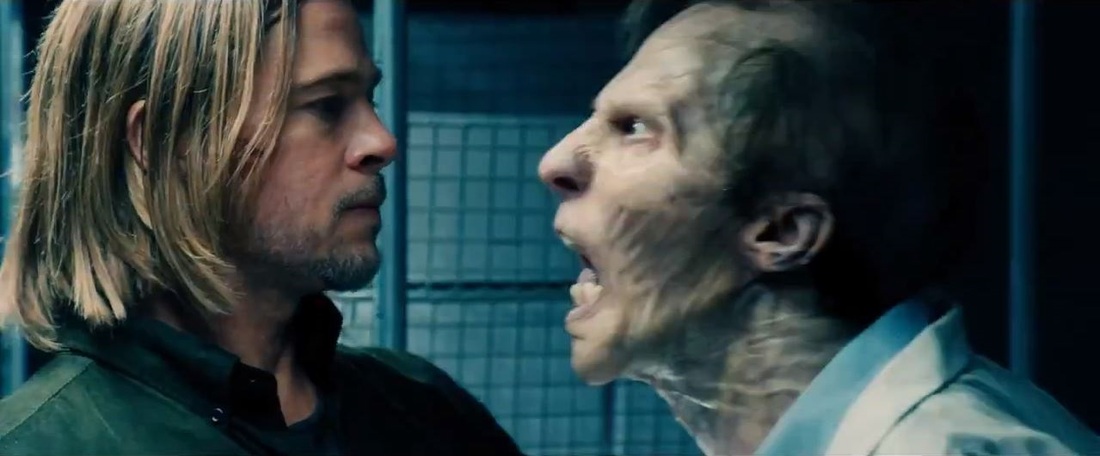 World War Z, starring Brad Pitt. The film followed a former UN investigator attempting to find a way to stop a zombie pandemic. It is considered to be one of the most realistic interpretations of a zombie apocalypse. 2. They make our current problems that we are facing in our lives seem trivial in comparison. So, work getting you down? Overbearing bosses, hard-to-meet deadlines, stress building to immense proportions? Well, just think...you could be having to put down friends and family members after they have become flesh eating humanoid shells. Usually the concept of a "zombie apocalypse" is expected baggage with nearly every zombie story across the board, or at least some sort of societal breakdown. The world isn't what is used to be; there are no more utopias, no more safe suburban neighborhoods. No more high school or college, first dates or dances. There is survival; there is "them" and "us." If the world ended tomorrow, what would be important to you? Probably not your job, nor your money, nor whatever precarious situation or turmoil you find your life in. Family, friends and loved ones would be my bet on what you would care about should the dead begin to rise. Not to mention, not everyone you care about will survive; heck, you might have to put them down yourself out of mercy. In order to get through the most trying times of our lives, most of us need something worse to compare it to; "it could be worse," is the popular saying. I'd say compared to what I just went over, that deadline at work would be a breeze. 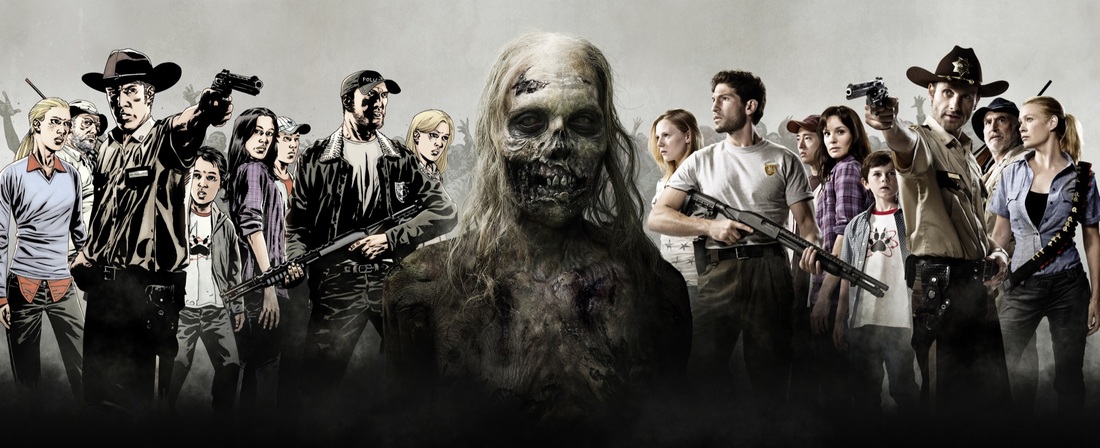 Robert Kirkman's The Walking Dead comic and TV show is renowned for it's engrossing storytelling and focus on human survivors following a zombie apocalypse. 3. Helps us put a "face" on the apocalypse. Our generation has heard plenty of "impending doom" stories, whether it be the failed predictions of the return of Jesus Christ or the infamous Mayan 2012 blabbety-blab. Instead of being scared into action, we've embraced the idea of the apocalypse. Granted, we don't want it happening anytime soon, but we've let our minds run wild with the idea; video games in particular have yielded some pretty fascinating post-civilization tales, such as the Fallout series and the critically acclaimed The Last of Us. So why does the zombie apocalypse seem to be more prevalent, rather than a nuclear or Biblical occurrence? Simple: not much changes. Sure, the emotional toll of putting down people out of mercy or the lack of rules, laws or any shred of the old life is very much a different world, but think about it. Humanity was built to survive and prevail; it's in our nature and design. We fight against all odds, even when we know we won't win. Violence is a strong suit of our species; killing is definitely nothing new. Connecting the puzzle pieces, during a zombie apocalypse we must kill in order to survive. A member of the undead comes at you, you must kill or be killed (and turned). We don't really know the true implications of a nuclear fallout, Biblical event or any other event, but the outlandish nature of the dead being resurrected in order to eat people is a completely human invention. All other apocalyptic scenarios involve nature reacting to the event and the human race being caught in the crossfire. The rising of the dead is, realistically, not likely, so the genre really has been used to give us an outlet to deal with the anger, fear, sorrow or whatever other emotion that is evoked while contemplating the end of the world. This way, it could be dramatic (The Walking Dead), it could be tongue-in-cheek (Shaun of the Dead) or full of dread (World War Z). 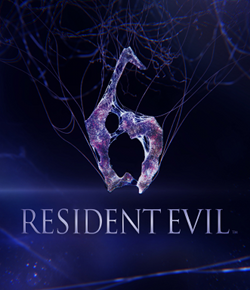 Resident Evil, one of the most iconic zombie video game series. | 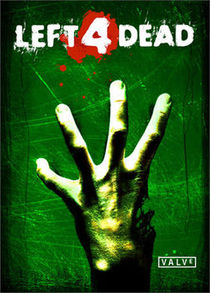 Left 4 Dead, from the makers of Half Life, is another dominant zombie video game series. | 4. Brings us together. I think Rick Grimes sums it up pretty well when he chided Merle Dixon. "There are no [offensive racial slur] anymore. No dumb-as-shit-inbred-white-trash-fools either. Only dark meat and white meat. That's us and the dead." This is an underlying theme of all the previously discussed reasons. The zombie apocalypse would bring the human race together like never before. Sure, any disaster event or tragedy would bring us closer together, but the emotional toll of the undead would be the ultimate numbing tool to our differences. Having to see the horror of what the human race has been reduced to, watching each other's backs in order to survive, and unfortunately, losing people would make brothers and sisters out of those who would've been divided by racial lines, religious devotion or societal roles. As ironic as it sounds, the zombie apocalypse brings out the best in us as humans; we work together to survive and come to care for each and every one of those we encounter. Even if they are a danger, we are hesitant to kill the living. The world may end and the dead may rise, but our humanity is our greatest weapon. It not only differentiates us from the lifeless that we are fighting, but it builds a camaraderie, a common understanding amidst the few survivors left. It not only builds our spirits; it builds an army. An army to fight for the living. To fight the dead. 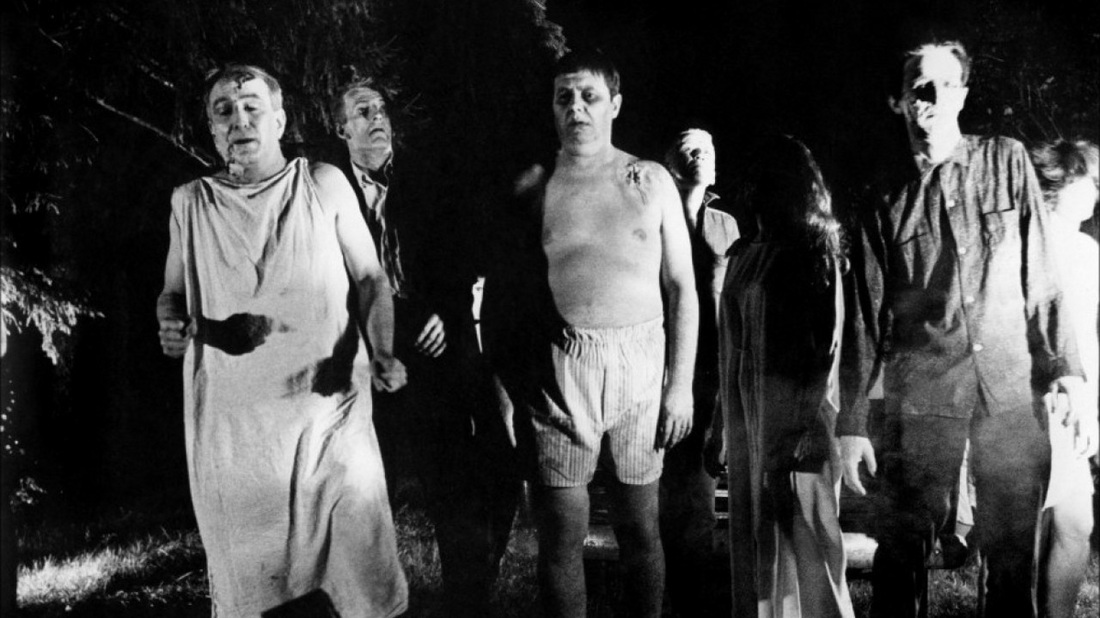 It all started with this; the first zombies in George A. Romero's Night of the Living Dead.
Behind every legend is a myriad of great men and women. The Shepard, as he is lovingly referred to in the vague future of the Mass Effect universe, spent the majority of three full games building a team of elite scientists, vagabonds and warriors. Some were friends, others enemies. Some were virtuous, others ruthless. But in the end, this merry band of troublemakers drove back the sentient race of machines that planned to harvest the entire galaxy and ultimately defeated them together. Together.
"We have to stand together," Shepard would say, and through his actions he lived these words. He broke down prejudices and destroyed the barriers that separated every member of his team from each other. With Shepard's help, we began to see each member for who they really were and fell even more in love with them. Well, most of them. I'll take you through my own Shepard's map of who these characters were and why I loved them. And, in some cases, what really bugged me about some of them.
MINOR SPOILERS AHEAD!
#1. Kaidan Alenko (Mass Effect 1, 2 & 3)
- Alliance soldier; served on the Normandy SR1 & SR2
- Sentinel; biotic & technical experience
- Possible romantic interest for MaleShep & FemShep
- Part of Commander Shepard's squad during the Battle of the Citadel (ME1) and The Reaper War (ME3)
Why he's loved: Kaidan definitely had his faults (doesn't everyone?), but he was a man of conviction. Amidst the diverse group of aliens in Shepard's squad, Kaidan was the most down to earth (no pun intended) member of it. He spoke of experiencing every day things, such as headaches, Liara's beauty and an incident where he snapped a sergeant's neck for abusing a girl he liked. Don't worry, he regretted killing the guy. Over the course of the games, gamers saw Kaidan evolve from the whiny lieutenant to the brother and soldier that always tried his best to do the right thing. Also, he was a believable and genuine romantic interest for FemSheps (and some MaleSheps) out there.
#2. Ashley Williams (ME 1, 2 & 3)
- Alliance soldier; served on Eden Prime as part of the 2nd Frontier Division and eventually served onboard the Normandy SR1 & SR2
- Traditional soldier; trained in all armaments & weapons
- Possible romantic interest for MaleShep
- Part of Commander Shepard's squad during the Battle of the Citadel (ME1) and The Reaper War (ME3)
Why she's loved: Gunnery Chief Williams, like Kaidan Alenko, was there from the very beginning of the trilogy. When Shepard and Alenko saved her from geth troopers, gamers couldn't have guessed how special the soldier standing in front of them was, or how important a role she would play in the commander's life. She was a young woman who felt like she had nothing to lose and everything to prove; her father, General Williams, was the first human to surrender to an alien force when he surrendered to the Turians at Shanxi during the First Contact War. Thus, a shadow was cast over Ashley's entire military career. Being the son a pastor, I know all too well what it's like to face unfair prejudices and it's inspiring to see a character who prevails and ultimately defeats those judgments; she eventually became a Spectre in Mass Effect 3, the equivalent of Shepard. She's also the grandma of all future romantic interests, as she was the first one introduced (being that most gamers are still guys).
What bugs me: She has some pretty pessimistic views about certain things, unfortunately. Despite having certain judgments placed on her, she harbors a few stereotypical views against the aliens who populate Shepard's crew, like being wary about trusting them too easily. Also, she strongly dislikes Liara to begin with, though it's mostly because she's competition. Women...
#3. Tali'Zorah nar Rayya [vas Normandy] (ME 1, 2 & 3)
- Quarian engineer; was on pilgrimmage when she joined Shepard on the Normandy SR1. She eventually followed him again onto the SR2.
- An expert in technological battle & warfare
- Possible romantic interest for MaleShep
- Part of Commander Shepard's squad during the Battle of the Citadel (ME1), the downfall of the Collectors (ME2), and The Reaper War (ME3)
Why she's loved: Tali is one of two unique characters (the other being Garrus Vakarian) who was there with Shepard every step of the way in the trilogy. She was actually one of the first familiar characters Shepard ran into in Mass Effect 2. Though she is young, her people place a lot of responsibility on her. She gets very attached to Shepard, whether she's romanced or not, and that in turn made you care a lot about what happened to her. Despite this, she could also be fierce, as evidenced in her confrontation with Legion over his transmitting classified Quarian data to his people. She also acted as an enlightened figure to her people, as she traveled with and came to care for Legion and was the only quarian who stood against the destruction of the entire geth people. Her brother-and-sister-like relationship with the crew of the original Normandy (i.e. Shepard, Ashley/Kaidan, Liara, Garrus and Wrex) was a great thing to watch, as you got the feeling that you weren't the only one who had been through three games with these guys.
#4. Liara T'Soni (ME 1, 2 & 3)
- Asari scientist; discovered by Shepard in a Prothean dig site, following an attack by the Geth
- Highly intelligent and skilled in biotics
- Possible romantic interest for MaleShep & FemShep
- Part of Commander Shepard's squad during the Battle of the Citadel (ME1) and The Reaper War (ME3)
- Daughter of Matriarch Benezia, a powerful figure in asari society
- The third known Shadow Broker
Why she's loved: She's Liara. Enough said. But for those who don't understand, I'll elaborate. She is the heart of the Mass Effect universe. You met her when she was a young and naive scientist, studying the ancient race of Protheans at a dig site. Two years later, she was in a war with the Shadow Broker and had left her education behind, for the most part. Beautiful and dark, Liara ALWAYS had Shepard's back, no matter what choices he made or who he killed. She was respectful toward every crew or squad member, which in turn granted her their respect. It was easy for any Shepard to fall in love with her, due to the intimacy she granted them.
#5. Garrus Vakarian (ME 1, 2 & 3)
- Turian vigilante; former C-Sec officer
- Skilled in weapons & arms, as well as minor knowledge of tech
- Possible romantic interest for FemShep
- Part of Commander Shepard's squad during the Battle of the Citadel (ME1), the downfall of the Collectors (ME2), and The Reaper War (ME3)
- Also known by alias Archangel
Why he's loved: Let's say Tali served as the female gamer's constant during the trilogy; that would make Garrus the guy gamer's. Like his counterpart, Garrus was with Shepard through the entire trilogy and trusted the commander with his life. Say these guys were the Avengers: Shepard would be Captain America and Garrus would be Iron Man. Though he never completely understood the commander's motivations or perspective, he eventually realized that he was right. It wasn't manipulation, but rather learning from his teacher. Garrus also served as a sort of avatar of tolerance; he did not see race, nor anything else. He only saw character, strength and really big guns. His evolution over the trilogy was unmatched, going from a lowly police officer on the Citadel to a sort of legend in the turian military. He was the most human of all the aliens in the trilogy.
#6. Urdnot Wrex (ME 1, 2 & 3)
- Krogan warrior; was working as a mercenary when he met Shepard
- Skilled in war, by nature; a level-headed leader of the Krogan people
- Part of Commander Shepard's squad during the Battle of the Citadel (ME1)
- First and only krogan, besides Urdnot Grunt after him, to kill a thresher maw during the Rite of Passage
- De facto leader of the krogan people, leading them against the Reapers during the Reaper War
- Oversaw and assisted in the curing of the Genophage, the sterility plague that had been unleashed on the krogan by the turians during the Krogan Rebellions
Why he's loved: Wrex did not let being named Best Sidekick of the Year in 2007 go to his head; he would always do what was right for his people. He was selfless and driven, remaining loyal to his friend Commander Shepard even when he couldn't be there with him. Once he became leader of the krogan, he carved a new path for his people and didn't let the memory of the Genophage affect his decisions; they would be different this time around. Wrex considered Shepard a brother, after all that they had been through together, including putting guns in each other's faces.
#7. Miranda Lawson (Mass Effect: Galaxy, 2 & 3)
- Former Cerberus officer; an adept leader
- Highly intelligent and skilled in weapons & arms; also a minor biotic
- Possible romantic interest for MaleShep
- Part of Commander Shepard's squad during the downfall of the Collectors (ME2)
- Served as Jacob Taylor's informant during the Batarian plot to assassinate Ambassador Jath'Amon (Mass Effect: Galaxy)
- Head of the Lazarus Project, a Cerberus funded op that was instrumental in the downfall of the Collectors
- Genetically grown and altered by Henry Lawson, her father; she also had a sister named Oriana, whom she protected from the former
Why she's loved: Miranda was sort of the Liara of Mass Effect 2. She didn't always agree with Shepard's decisions, but recognized that he was in command. Plus, being head of the Lazarus Project, she felt a sort of motherly protection of Shepard once they began traveling together. She was intelligent and wise beyond her years, though she was not perfect in the least bit. She was not immune to the everyday issues of her humanity; she felt inadequate and not always at her best. It was with the help of Shepard that she finally came to terms with the fact that she was still human, despite being engineered to be "perfect." In the beginning, she saw Shepard as a tool for her own gain: defeating the Collectors and expanding Cerberus' power. Due to his influence, however, she turned her back on everything she had known, left Cerberus and became a vital part of Shepard's war effort against her former employer and the Reapers.
#8. Urdnot Grunt (ME 2 & 3)
- Krogan super-soldier; tank-bred by Warlord Okeer
- Skilled in war; bred to be the ideal and perfect krogan specimen
- Part of Commander Shepard's squad during the downfall of the Collectors (ME2)
- The only other krogan besides Urdnot Wrex before him to defeat the thresher maw during his Rite of Passage
- Controversial, due to his unnatural tank-bred origins
- Leader of Aralakh Company during The Reaper War
- Present during the Re-emergence of the Rachni
Why he's loved: "You should be in awe." Don't worry, Grunt, we are. Following his "birthing" from the tank at the hands of Commander Shepard, Grunt began learning the nature and ways of his people. We were right there alongside him, learning that krogan should hate turians, love violence and war and do some smirky little laugh after killing. Well, ok, that last one was just him. After successfully completing his Rite of Passage, Grunt began his journey towards being a true krogan; he would eventually be chosen to lead a small team against the ancient krogan enemy, Rachni. He loved the challenge and quickly took to command just like his battlemaster before him, Shepard. He was like the little kid in all of us while we were playing the game; loving the fighting and adventure, then finally realizing what he had to do in the end. He held great respect for the commander, even willing to fight and die in honor of his name. We, as Shepard, would've done the same thing. We remain "in awe" of Urdnot Grunt.
#9. Mordin Solus (ME 2 & 3)
- Salarian scientist; was maintaining a medical clinic and presence on Omega when he met Shepard
- Highly intelligent; expert in medical and scientific fields, as well as basic knowledge of tech
- Part of Commander Shepard's squad during the downfall of the Collectors (ME2)
- Formerly a part of Salarian STG; served under Captain Kirrahe, who assisted Shepard on Virmire during the pursuit of Saren (ME1)
- Part of the team of scientists who modified the Genophage virus, a sterility plague that effectively ended the Krogan Rebellions, after natural krogan adaptation
- However, Solus was instrumental in synthesizing and distributing the cure for the plague during The Reaper War
- An avid singer & theatre performer
Why he's loved: Mordin was my own personal favorite out of the bunch. It goes without saying that he was intelligent; he was also caring, logical, mad and quirky. His speech was almost always frantic and quick; he couldn't slow down, due to there being "no time." He kept busy, whilst entertaining himself by singing. He saw everything logically, evidenced by his behavior on Omega; he protected the clinic he had by simply shooting down any remote or possible threats. As he put it, "Lots of ways to help people. Sometimes heal patients, sometimes execute dangerous people. Either way helps." He also loved to teach others his knowledge and cared about his students; he asked Shepard to rescue Daniel, his assistant on Omega, as well as being proud of Maelon for standing up for what he believed in.
What bugs me: Why did they replace Michael Beattie, his voice actor in Mass Effect 2, in Mass Effect 3? Not cool...
#10. Jack (ME 2 & 3)
- Prisoner aboard the vessel Purgatory; escaped, with the help of Shepard, during the downfall of the Collectors
- Extremely powerful biotic; also prone to extreme violence
- Possible romantic interest for MaleShep
- Part of Commander Shepard's squad during the downfall of the Collectors (ME2)
- Abducted by Cerberus at an early age and placed in the Teltin facility on Pragia; known as Subject Zero, she was the prime subject in an experiment to enhance biotic potential in humans
- Subject of drugging, neglect and torture during her childhood at the facility
- Tattoos are representational of kills, prisons and other major events in her life; however, some are simply to cover up or disguise scars from earlier experimentation and torture
- Eventually became a teacher of biotics at the Alliance's esteemed Grissom Academy
- Also known by the alias Jacqueline Nought; it is unknown if this is her given name
Why she's loved: Jack was a character whom you had to work to love. Or ignore her. I chose the latter in my first playthrough of Mass Effect 2. Then, in one of my other MaleSheps, I decided to romance her, see what that was like. What I found was actually very moving; Jack was a heavily scarred person, more so in her soul than her body. She had that tough false front on at all times, believing everyone had secret motivations for speaking with her. She accused my Shepard of just wanting sex, which caught me a little off guard; that was how she was, though. She said the things that other people tip-toed around, mostly because they needed to be said. Once she let down her guard with me, she was scared, heartbroken and fragile. And if the feelings were too much for you, wait until you got to Mass Effect 3. She became mature, strong and even motherly, after taking a group of students at Grisson Academy under her wing. To me, she was what I wanted to be whenever I was upset; say what's on my mind, and if they didn't like it, smack them with biotics. Problem solved.
#11. Samara (ME 2 & 3)
- Asari Justicar; part of an ancient monastic order of a strict honor code. She encountered Shepard while pursuing her murdering daughter, Morinth
- An adept of biotics; a strict honor code drives her actions and even her emotions
- (Somewhat) possible romantic interest for MaleShep & FemShep
- Part of Commander Shepard's squad during the downfall of the Collectors (ME2)
- Successfully ended Morinth's string of sexual murders; despite this, she displayed motherly love and regret towards the outcome of Morinth's condition
- Had three daughters (Falere, Morinth and Rila) who were all three Ardat-Yakshi: asari with a rare genetic condition that enhances their nervous system to the point that it overpowers those that they mate with, causing hemorrhaging in the brain and ending in the mate's death
Why she's loved: My favorite, aside from Mordin. She was wise, deadly and gorgeous. Her devotion to her code was admirable; it required the discipline and self-restraint that I wish I had. To me, she was almost a more mature alternative to Liara; she was older and had been through a lot more than the scientist. Plus, it was also a challenge to get her to show any emotion, usually preferring the monotone. She could pull it off, though, like nobody's business. She made you want to make all the right decisions, just to justify yourself in her eyes.
What bugs me: No full-fledged romance with her? Talk about dropping the ball...
#12. Morinth (ME 2 & 3)
- Ardat-Yakshi; asari with a rare genetic condition that allows them to murder bondmates
- A natural biotic, due in part to her race's affinity for the power and her upbringing by Samara
- (A short) romantic interest for a MaleShep & FemShep; due to her condition, it would end with Shepard's death. Not a true romantic interest
- Part of Commander Shepard's squad during the downfall of the Collectors (ME2), should Shepard have chosen her instead of Samara
- Able to mimic her mother's speech patterns and personality exactly; she used this to keep her identity from the rest of the Normandy crew
- She sought refuge at an Ardat-Yakshi sanctuary with her sisters Falere and Rila during The Reaper War
Why she's loved: Uh...she isn't, really. She was what you got if you chose her instead of Samara. Other than that, she acted like Samara, mostly.
What bugs me: That she acted like Samara. Come on, give her her own personality. Who cares what the rest of the Normandy crew thinks? Shepard makes the calls, not them.
#13. Jacob Taylor (ME: G, 2 & 3)
- Former Cerberus operative; before that, an Alliance soldier
- Skilled in weapons & arms, as well as minor biotic potential
- Possible romantic interest for FemShep
- Part of Commander Shepard's squad during the downfall of the Collectors (ME2)
- Stopped a batarian plot and assassination attempt on Ambassador Jath'Amon, with the aid of Miranda Lawson (ME: G)
- During his tenure with the Alliance, Taylor was present during the Battle of Eden Prime; here, Saren and his geth attacked the human colony in search of a Prothean beacon
- Also served as an Alliance corsair before departing for Cerberus
Why he's loved: Jacob was reminiscent of Kaidan Alenko; he always strived to do the right thing and was ruled by his conscience. He was a capable soldier, however, evidenced by his work during the events of Mass Effect: Galaxy. He could also be very practical; after Miranda worried that they couldn't deactivate Legion if he were a hostile, Jacob simply responded, "Bullets can." It was easy to care for Jacob because of his innocent nature; he was almost like the teenager in Shepard's family.
What bugs me: Had a "meh" romance subplot ending. "But, Ben, how would you know about that?" Uh...next one...
#14. Kasumi Goto (ME 2 & 3)
- Master thief; appearance and name unknown to most in the galaxy
- Technical expertise; able to hack and bypass any program or system
- Part of Commander Shepard's squad during the downfall of the Collectors (ME2)
- Had partnership with fellow thief and boyfriend Keiji Okuda, whom was killed by weapons dealer Donovan Hock; with the aid of Shepard, Goto would enact revenge on the smuggler prior to the downfall of the Collectors
- Pursued by salarian Spectre Jondum Bau for years; however, the two have great respect for each other's abilities
- Aided in the construction of the Crucible during The Reaper War
Why she's loved: Kasumi! Finally, a light-hearted, hidden-motivation-free squad member. Despite being in dangerous situations time and time again, she never loses her sense of humor. She was in complete control of her emotions, never shedding a tear when speaking of her late boyfriend, Keiji Okuda. She was smart and highly sophisticated, taking pride in her creative ways of thievery. You had to respect her abilities.
What bugs me: No romance with her. Romance in a video game seems to be important to me. Hmm...
#15. Thane Krios (ME 2 & 3)
- Drell assassin; trained by the hanar from the age of six to be a killer
- Expert in stealth and silent hits, while also having minor biotic potential
- Possible romantic interest for FemShep
- Part of Commander Shepard's squad during the downfall of the Collectors (ME2)
- Met his future wife, Irikah, when she stepped in the way of his scope during an assassination; later, they had a son named Kolyat, who would attempt to follow in his father's footsteps
- After Irikah was murdered in revenge for one of his assassinations, Thane left Kolyat in the care of aunts and uncles in order to pursue his wife's killers; he wouldn't return to his son until his journeys with Shepard
- Thane suffers from Kepral's Syndrome, a disease that destroys the ability of drell lungs to take in oxygen, leading to eventual suffication
Why he's loved: "The measure of an individual can be difficult to discern by actions alone." He just described himself in one sentence. Thane was an assassin, but was very religious. Nope, didn't see that coming either. He was confident and reserved, but also harbored shame and regret when thinking of his past. He tried to purge himself of emotion, but was unsuccessful. He was a father who struggled with his responsibility, with balancing his family and work. But you felt that he was TRULY sorrowful about all of this. You couldn't let his actions speak for him; there was something good inside of him. Only Thane could turn a popular saying ("Actions speak louder than words") upside down.
#16. Legion (ME 2 & 3)
- Geth platform; unique in it's ability to speak and communicate with organics
- An exceptional example of a geth trooper, with a particular affinity for tech and weapons
- Part of Commander Shepard's squad during the downfall of the Collectors (ME2)
- Searched for Shepard for two years, exploring all of the locations that the commander had visited; his time on Eden Prime proved to be important, as he was shot by Alliance soldiers, leaving a hole in his structure
- Once Legion discovered the Normandy SR1's crash site, he used a piece of the commander's old N7 armor to repair the hole; it is unknown why the calculation-driven synthetic chose to use Shepard's armor
- A member of what is now known as True Geth, the members of the race who oppose the Reapers, in contrast to the perpetrators of the Battle of Eden Prime and the Citadel, whom are known as Heretics
- Houses 1, 183 individual geth programs, making it a consciousness within a mobile platform
Why he's loved: A geth! After playing through the first Mass Effect, all geth looked evil. Heck, to my knowledge, all of them WERE evil. BioWare loves to turn things upside down; this time, they made a "good" geth who spoke and had a piece of my old armor grafted into him for mysterious reasons. Legion represented a milestone in the Mass Effect universe parallel to that of the curing of the Genophage; synthetics could feel and make irrational decisions like organics. I could draw many parallels between Legion and Urdnot Wrex; both of them were the face of their respective races and both only wanted the best for their people, not war.
What bugs me: Why not make a DLC that follows Legion during his pursuit of Shepard? Because there is still a bit of him shrouded in mystery.
#17. Zaeed Massani (ME 2 & 3)
- Bounty hunter; the galaxy's most feared mercenary soldier
- Expert in arms and armor
- Part of Commander Shepard's squad during the downfall of the Collectors (ME2)
- Co-founder of the Blue Suns mercenary group with Vido Santiago; he was later betrayed, shot and left to die
- Joined Shepard exclusively for the fee he was paid by Cerberus
- Turned down a job offer from Cerberus after negotiations went badly; he then began a personal campaign to hinder Cerberus operations
- Instrumental in gaining the support of the Volus Bombing Fleet during the Reaper War
Why he's loved: Zaeed began as simply a gun-for-hire during the downfall of the Collectors, but quickly grew to be an important member of Shepard's crew. Like Jack, he usually chose to stick to himself and I don't blame him. Some of the drama that played out on the Normandy would have suited Zaeed ill, though he wasn't without his own baggage. He was a man fueled by revenge and was willing to sacrifice an entire refinery of people to take out one man. Now, I'm not saying that's right, but it made me feel for the merciless bounty hunter. The desperation that was in his voice as we raced through the refinery made me want revenge on Vido Santiago, too, and I didn't even know the guy. I mostly respect Zaeed because, after seeing him fight through the colony of Horizon and the Collector homeworld, I remembered that, hey, he was in it just for the money. Well worth it.
What bugs me: No romance...JUST KIDDING. I was bothered by the fact that he never really got revenge on Vido Santiago. That subplot, I feel, was forgotten during the writing sessions for Mass Effect 3. Ah, well...I'm sure he's dead.
#18. James Vega (ME 3)
- Alliance marine; a prospect for the N7 program, of which Shepard was a graduate
- Arms master, as well as experience in armor
- Part of Commander Shepard's squad during The Reaper War (ME3)
- Became de facto leader of a team of marines after their CO, Captain Toni, was killed while guarding a civilian colony from the Collectors
- Allowed the colony to die in order to gain intel to defeat Collectors; an action rendered unnecessary thanks to their defeat at the hands of Shepard
- Assigned to guard Shepard on the way to the commander's trial on Earth, following the events in the Bahak system (Mass Effect 2: Arrival)
Why he's loved: James Vega was the surprise star of the third installment. Due to the announcement of same-sex romance options for MaleShep and FemShep, many gamers thought he would be the one for MaleShep. Turns out, it wasn't like that all. James was a young, honest marine who loved to joke and check out the ladies; however, he could also be serious, as evidenced by his admission to the N7 program. He served as the eyes for which a newcomer to the franchise would see the universe; he didn't have a clue about the political underbelly of the galaxy and saw everything through a fresh perspective. This, in turn, helped Shepard out when he had gotten too distracted by the Council's BS. Vega also looked up to Shepard, like Garrus had before him. And I looked back down at him, especially if I needed something to chuckle at. His remarks about the game's events were, at times, priceless.
#19. Javik (ME 3)
- Prothean warrior; the last of the ancient race
- Skilled in weapons as well as biotics
- Part of Commander Shepard's squad during The Reaper War (ME3)
- Preserved in a stasis pod following the Reaper's conquest of the Protheans; he was awakened on Eden Prime by Shepard and Liara T'Soni towards the beginning of The Reaper War
- Fought the Reapers with his own race 50,000 years before joining Shepard
- Able to read physiology, pheromones and other experiences through physical touch; similar to psychometry
- Firm belief in the "survival of the fittest"
Why he's loved: Another surprise addition to the cast of Mass Effect 3. A Prothean, that race we'd heard about for two games! We could only assume what they were like; in truth, we were like Liara. We placed these labels on them, like they were the kind forerunners of the galaxy. Then we met Javik. An avatar of Vengeance for his people, his sole purpose was to conquer the galaxy. He knew nothing but war. He had no patience for Liara's curiosity, nor the state of the galaxy. It was something Shepard desperately needed in his crew, however. Javik brought another fresh perspective, but unlike James Vega, he knew the petty politics and simply renounced them. Hated them. He felt the galaxy should be ruled with an iron fist. At times, that's exactly what I wanted to do and having a freaking Prothean backing me up did wonders for my confidence. Plus, he could fight. It was epic to watch him battle Collectors during his time, having spent an entire game battling them myself.
What bugs me: Wish he had some more outfits. "Ben, you're being such a girl." No, a girl would care about romance...oh, wait...
#20. EDI (ME 1, 2 & 3)
- Artificial Intelligence; began as a Virtual Intelligence on Earth's moon, Luna, before being expanded into an AI by Cerberus
- Skilled in technological and cyber warfare; she is the intelligence that operates the Normandy SR2
- Part of Commander Shepard's squad during The Reaper War (ME3), though she was present during the downfall of the Collectors (ME2)
- First encountered the commander during his trip to Luna; she, as a VI, had gone rogue and become hostile to the people stationed there
- Repurposed by Cerberus to operate the Normandy SR2; she was later "unshackled" by Jeff "Joker" Moreau, when the ship was attacked and boarded by the Collectors
- After Shepard recovered an android-like intelligence from the Alliance outpost on Mars, EDI proceeded to take over and install a part of herself within the android's body, thereby allowing her to travel with Shepard and his squad
Why she's loved: This is someone I would've never thought would be on this list. Mass Effect 3, despite its controversies, had plenty of surprises to offer; EDI's "body-fication" was one of them. She had been pretty cool during the downfall of the Collectors, though she was confined to the Normandy since she was an AI. Then, she invaded a Cerberus android's body during The Reaper War and voila, there she is. Joker definitely liked the new bod, and so did we. Besides all of that, she was still who she was: logical and caring for the Normandy crew. She also seemed more frantic and "human" during The Reaper War, mostly because her unshackling at the hands of Joker left her with the freedom to ask questions and choose her own fate. Plus, the fact that Cerberus invested so much in her and she turned on them with you just felt great. The AI chose you over them.
What bugs me: She donned a Miranda-esque uniform in Mass Effect 3. Know what that means? Tight clothes. Are you trying to push something on us, BioWare? Come on, she's Joker's lady.
Anyone who has ever seen a film adaptation of a video game property knows one thing: they SUCK. I don't know what it is, but Hollywood just can't seem to grasp what makes a video game great. Unnecessary changes and complications are added to make the property more appealing or original; the result is the complete opposite. But, we're gamers. We can still be hopeful, despite all the crap that comes out of our dumb sister industry. What better to fuel our hope than fake movie posters for video game property adaptations? These are fan made and with that comes the tender-loving-care gamers have for the franchises that Hollywood executives don't understand. Here are the top ten coolest fake movie posters.
#10. Pac-Man How would Pac-Man be made into a movie? Ain't got a clue. Pretty cool movie poster though. I like how the poster pays homage to the game without revealing the characters. Making them just balls of light doesn't confine the characters to just being circles; they can be actual people going through a situation similar to what Pac Man is going through.
#9. Infamous To be quite honest, I have never played this game series, though it would be one of the first ones I'd pick up if it ever came out for the Xbox. There's something epic about a hero with his back to the camera, faceless and battle-hardened. The tagline "Power Transforms," gives a reason for the shame that Cole is feeling in this image, as well as the electric bolts on his arms.
#8. Splinter Cell This one may be a reality sooner than we think, with Tom Hardy recently signing up for the role of Sam Fisher. It says something about a character when they can be awesome just by standing there. It also shows the power of the franchise if an image of a character can be the sole promotion for a venture.
#7. Mass Effect Taking cues from the Star Trek reboot poster in 2009, this displays several fan favorite characters, which is enough to get people pumped about the movie. It could've gotten away with a few more characters squeezed in there; also, Thane (far right, green guy) didn't show up in the franchise until Mass Effect 2. And where's Saren, the main villain of the first game? Still, pretty decent job.
#6. Slender Man You'd have to add on some story, but The Slender Man would make a great horror movie, I think. It goes down to our base instincts: someone is following me. This poster is perfect, because it's already showing loyalty to the game: look back and there's the Slender Man.
#5. BioShock BioShock would make a great movie. Recently we've learned that Ken Levine, the genius behind the series, shut down the film adaptation. Probably for the best. This poster is the last remnant we have. The quote at the top is the perfect quotation to promote the movie, as antagonist Andrew Ryan spouts his hatred of bigots and hypocrites. I personally would've utilized a Big Daddy rather than Jack using his plasmid power, but they are both pretty recognizable staples of the game.
#4. The Elder Scrolls IV: Oblivion I'm a little biased with this poster, as I have a plethora of amazing memories with Oblivion. It was the first game I got when I received an Xbox 360 for Christmas several years back. I'm not sure if it would make a great movie due to its immense size, but I would definitely give it a shot. You know what would not convince me to give it a shot, though? Nicolas Cage in the lead role...
#3. God of War As is the case with Infamous, I've never gotten the chance to play God of War, though even I can't deny how awesome this poster looks. If you look at it objectively, it really doesn't show us anything. Oh, cool, this movie will have some mountains, clouds, and a dude with a sword. Then your eyes catch the red markings on the man's back and suddenly, this poster shows much more.
#2. Portal
Just perfect. GLaDOS and Chell, separated by what could be a blue portal. Natalie Portman as Chell? Yes please. She resembles the character and could probably play it very well. Hopefully, this will be a reality pretty soon as well. Oh and kudos for the portal being the "O" in Portal. Very clever.
#1. The Legend of Zelda
A lot of effort went into making this poster, at least from what I can tell. The appeal of it is fantastic; gamers want to go see it for obvious reasons and non-gamers would be enthralled by the adventurous theme of the poster. Lord of the Rings fanatics would be all over this movie.
This past year was a strange one for Epic Games. The studio lost president Mike Capps, director of production Rod Fergusson, and creative director Cliff Bleszinski. The first two, I honestly could care less. That last one, though, had me in a daze. Bleszinksi created the studios' flagship franchise, Gears of War, and led the direction it would take since conception. The newest installment, Gears of War: Judgment, was announced while Bleszinski was still at the company, so I was super excited for another installment. Then, the retirement announcement came and at the time, I didn't think much of it. I was still excited to have an entire game dedicated to Baird and Cole, the former being my absolute favorite character of the franchise. Now, seeing the finished product, I can honestly say that the game is missing...something. Judgment, despite having the feel of a Gears of War game, is nothing like what I was expecting. No, not in the good way. Flaws in character development, pacing and writing ultimately brought this installment down for me. I hate that I have to write such a negative review for a game that I think had a ton of potential. Before I get to the review, though, I'll give some background.
So Judgment takes place about fifteen years before the original Gears of War, but don't think that the situation of Sera (the planet) is any better. Locust have just begun to emerge on the surface and slaughter the human race. The game's setting is Halvo Bay, which is the sight of a major battle of the war, known as the Destruction of Halvo Bay. Here, a Locust leader (general?) named Karn leads a seemingly neverending force across the area. This is where Kilo squad, under the leadership of then-lieutenant Damon Baird, is deployed by Colonel Ezra Loomis. Also in Kilo squad is fan favorite Pvt. Augustus Cole (Cole Train!) and two new characters, Sofia Hendrik and Garron Paduk. This is where the bad stuff begins, sadly with the fan favorite leads. I don't know who these two impostors are, but they are NOT Baird and Cole. While the original Baird was the ultimate smartass, who would regularly get demoted for insubordination, THIS Baird spends most of the time saying "Yes sir," and listening to the rest of his squad. Then, out of nowhere, he'll drop a wannabe smartass line that is not funny at all because you're so bewildered that the man said "Yes sir," earlier. This was probably one of the most inconsistent characters I've ever encountered in a video game and it makes me so sad to have to write that, because I absolutely thought the original Baird was AWESOME. And his energetic partner, Cole, did not once utter his "WOOO!" catchphrase. Nobody called him the Cole Train, either, and it's not a defense to say that "oh, well, this was before people started calling him that." They called him that when he was a Thrashball player before he joined the war! That's where the nickname came from. Plus, Lester Speight (the voice actor for Cole) really got a steal from Epic, because he must've had like ten lines, and the rest of them were just recycled from Gears of War 3. How lazy can you get, Epic?! 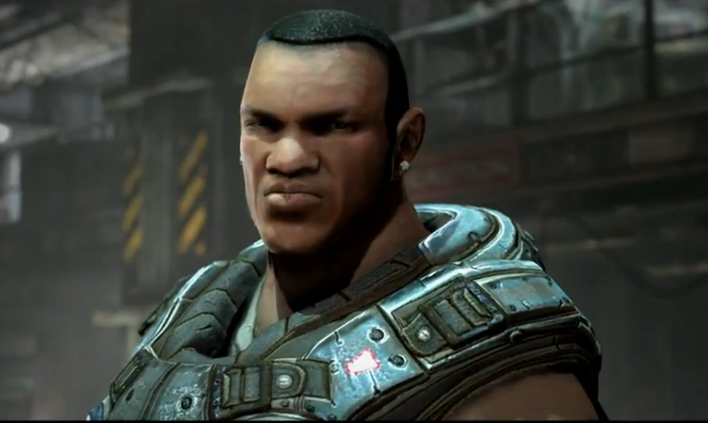 Cole, as he appears in Judgment. Then comes the story. Well, honestly, this game didn't really have a story. Making a game of nonstop shootouts and sprinkling in a few lines of dialogue is NOT a story. But, the few bits and pieces add up to Baird and Kilo going against some dick colonel's wishes in order to deploy a Lightmass missile and destroy Karn (the Locust general I mentioned earlier). And after they do that, the colonel holds an impromptu court session in an old building in the midst of an apocalyptic war with the Locust. Now, I know some people think irrationally and do stupid things, but come on! A colonel who knew they were losing the war would not waste time holding a stupid hearing in the midst of a battle.
And the writing, ugh. I grimace when I think of it. The entire game just felt so rushed. It's like you were on a tram and you were just being shuttled from one battle to the next, with little talking and character development in between. Actually, very poorly-written talking in between, and omit the character development. There was none. Basically, the entire game is told through flashbacks as Kilo tells Loomis their mission while in the hearing; however, as you hear their voices recount the story you're playing, you'd think it was your bedtime, 'cuz it felt like they were reading straight out of a novel to you. That's not really the actors' fault, but more of the direction Epic wanted to take it; bad direction, I say. The star of the game, if I had to choose one, would be the new squadmate Garron Paduk, because he echoed the likes of Marcus Fenix. Having somewhat cheesy dialogue, yet being so awesome he could get away with it. 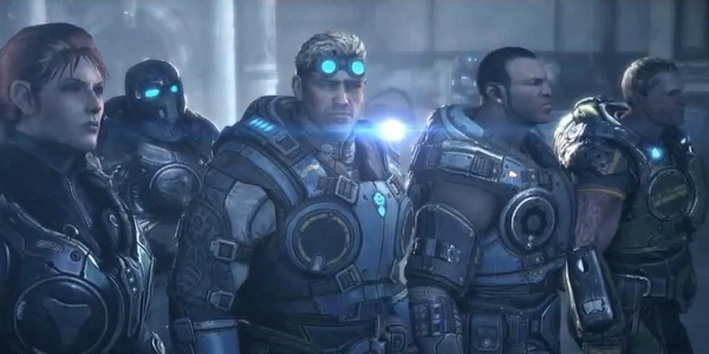 The Judgment squad: (from left to right) Sofia, Baird, Cole and Paduk. In fact, now that our previous protagonist has been brought up, this game did something I never thought was possible: it made me miss Marcus. And that's saying something, 'cuz he wasn't the best character development example, either. But there was just something about his stoic nature, his strength and his story that really kept you on the edge of your seat throughout the entire trilogy. You came to care for him, despite him being guarded for most of the time. And don't get me wrong, we cared about Baird and Cole as well. Just if you want us to still care about them, don't change them completely. That's just so obvious.
Alas, the game did have some positives to boast about. Combat was extraordinary. You might be facing the same enemies (the Locust) as always, but it's never been more fun cutting them down than it is in Judgment. Plus, the multiplayer customization was amazing. Offering different character and weapon skins, it really let you customize your character in a way that wasn't new, but uniquely Gears. Thanks to my pre-order, I was able to use a "Young Marcus Fenix" skin for my time in multiplayer and it was great hearing his voice again as I got my arse whooped (I'm not good at multiplayer). 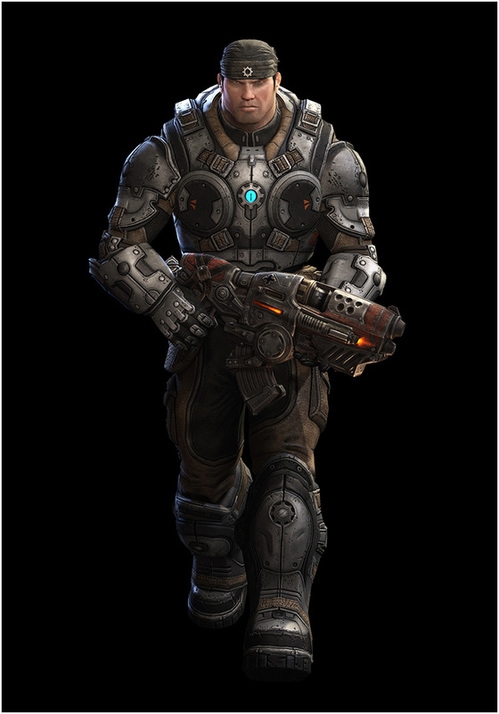 Young Marcus Fenix, as he appears in Judgment. Unfortunately, I can't offer you any positives on the story mode. Just awful. No epic battles, no funny Baird and Cole banter; just crap. Once you get a certain amount of stars in the campaign, however, you unlock a new extension to the Gears of War 3 story, Aftermath. It features a return to present time and has Baird and Cole display a little bit of
their usual selves, but not much.
So, all in all, Gears of War: Judgment was bad. I wouldn't recommend it unless you're a die-hard Gears of War fan, and even then, only if you have nothing better to do. I can't say that the game would be better if CliffyB was still directing it, 'cuz I don't know. I just know that the finished product we got would've been better served being cancelled and letting us figure the story of Baird and Cole out for ourselves.
We here at the TheGamerDrive have been given a great opportunity! Author Drew Karpyshyn, former writer for BioWare (retired February 2012), has granted us an interview. The author's video game work includes Mass Effect , Mass Effect 2, Star Wars: Knights of the Old Republic, and The Old Republic. He has also written many novels based on BioWare's properties and an original Star Wars story, the Darth Bane trilogy. Coming in the fall of 2013 is the beginning of his first original trilogy of novels, named Children of Fire. For more information, check out his website www.drewkarpyshyn.com. P.S. Ben also HIGHLY recommends the Star Wars: Darth Bane trilogy. Phenomenal story!
Check out his novels below!
***(All book purchases (excluding Temple Hill and Baldur's Gate II: Throne of Bhaal) are through A Real Bookstore in Fairview, TX, due to the fact they are our local bookstore and we support local. They do offer shipping services)***
Long ago the gods chose a great hero to act as their agent in the mortal world and to stand against the demonic spawn of Chaos. The gods gifted their champion, Daemron, with three magical Talismans: a sword, a ring, and a crown. But the awesome power at his command corrupted Daemron, turning him from savior to destroyer. Filled with pride, he dared to challenge the gods themselves. Siding with the Chaos spawn, Daemron waged a titanic battle against the Immortals. In the end, Daemron was defeated, the Talismans were lost, and Chaos was sealed off behind the Legacy—a magical barrier the gods sacrificed themselves to create.
Now the Legacy is fading. On the other side, the banished Daemron stirs. And across the scattered corners of the land, four children are born of suffering and strife, each touched by one aspect of Daemron himself—wizard, warrior, prophet, king.
Bound by a connection deeper than blood, the Children of Fire will either restore the Legacy or bring it crashing down, freeing Daemron to wreak his vengeance upon the mortal world. 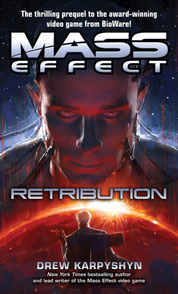 Humanity has reached the stars, joining the vast galactic community of alien species. But beyond the fringes of explored space lurk the Reapers, a race of sentient starships bent on “harvesting” the galaxy’s organic species for their own dark purpose. The Illusive Man, leader of the pro-human black ops group Cerberus, is one of the few who know the truth about the Reapers. To ensure humanity’s survival, he launches a desperate plan to uncover the enemy’s strengths—and weaknesses—by studying someone implanted with modified Reaper technology. He knows the perfect subject for his horrific experiments: former Cerberus operative Paul Grayson, who wrested his daughter from the cabal’s control with the help of Ascension project director Kahlee Sanders. But when Kahlee learns that Grayson is missing, she turns to the only person she can trust: Alliance war hero Captain David Anderson. Together they set out to find the secret Cerberus facility where Grayson is being held. But they aren’t the only ones after him. And time is running out. As the experiments continue, the sinister Reaper technology twists Grayson’s mind. The insidious whispers grow ever stronger in his head, threatening to take over his very identity and unleash the Reapers on an unsuspecting galaxy.
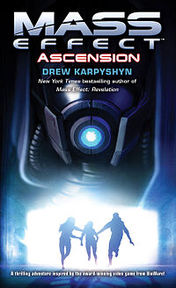 When they vanished fifty thousand years ago, the Protheans left their advanced technology scattered throughout the galaxy. The chance discovery of a Prothean cache on Mars allows humanity to join those already reaping the rewards of the ancients’ high-tech wizardry. But for one rogue militia, the goal is not participation but domination. Scientist Kahlee Sanders has left the Systems Alliance for the Ascension Project, a program that helps gifted “biotic” children harness their extraordinary powers. The program’s most promising student is twelve-year-old Gillian Grayson, who is borderline autistic. What Kahlee doesn’t know is that Gillian is an unwitting pawn of the outlawed black ops group Cerberus, which is sabotaging the program by conducting illegal experiments on the students. When the Cerberus plot is exposed, Gillian’s father takes her away from the Ascension Project and flees into the lawless Terminus Systems. Determined to protect Gillian, Kahlee goes with them… unaware that the elder Grayson is, in fact, a Cerberus operative. To rescue the young girl Kahlee must travel to the farthest ends of the galaxy, battling fierce enemies and impossible odds. But how will she be able to save a daughter from her own father?
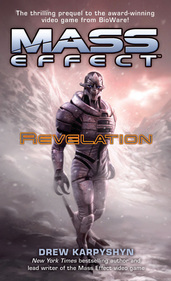 Every advanced society in the galaxy relies on the technology of the Protheans, an ancient species that vanished fifty thousand years ago. After discovering a cache of Prothean technology on Mars in 2148, humanity is spreading to the stars; the newest interstellar species, struggling to carve out its place in the greater galactic community.
On the edge of colonized space, ship commander and Alliance war hero David Anderson investigates the remains of a top secret military research station; smoking ruins littered with bodies and unanswered questions. Who attacked this post and for what purpose? And where is Kahlee Sanders, the young scientist who mysteriously vanished from the base–hours before her colleagues were slaughtered? Sanders is now the prime suspect, but finding her creates more problems for Anderson than it solves. Partnered with a rogue alien agent he can’t trust and pursued by an assassin he can’t escape, Anderson battles impossible odds on uncharted worlds to uncover a sinister conspiracy . . . one he won’t live to tell about. Or so the enemy thinks.
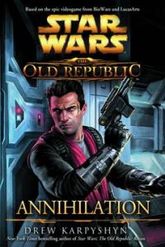 The Sith Empire is in flux. The Emperor is missing, presumed dead, and an ambitious Sith lord’s attempt to seize the throne has ended fatally. Still, Darth Karrid, commander of the fearsome Imperial battle cruiser Ascendant Spear, continues her relentless efforts to achieve total Sith domination of the galaxy. But Karrid’s ruthless determination is more than matched inthe steely resolve of Theron Shan, whose unfinished business with the Empire could change the course of the war for good. Though the son of a Jedi master, Theron does not wield the Force—but like his renowned mother, the spirit of rebellion is in his blood. As a top covert agent for the Republic, he struck a crucial blow against the Empire by exposing and destroying a Sith superweapon arsenal—which makes him the ideal operative for a daring and dangerous mission to end Ascendant Spear’s reign of terror. Joined by hot-headed smuggler Teff’ith, with whom he has an inexplicable bond, and wise Jedi warrior Gnost-Dural, Darth Karrid’s former master, Theron must match wits and weapons with a battle-tested crew of the most cold-blooded dark side disciples. But time is brutally short. And if they don’t seize their one chance to succeed, they will surely have countless opportunities to die.
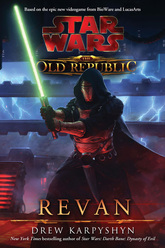 Hero, traitor, conqueror, villain, savior—the man called Revan has been all of these. He left Coruscant a Jedi, on a mission to defeat the Mandalorians. He returned a Sith disciple, bent on destroying the Republic. The Jedi Council gave Revan his life back, but the price of redemption was the loss of his memories. All that’s left are nightmares—and deep, abiding fear. What happened beyond the Outer Rim that Revan can’t quite remember or entirely forget? One thing he’s certain of: Something dark is plotting to destroy the very existence of the Republic. With no idea how to identify the threat, let alone stop it, Revan may be doomed to fail. For he’s never faced a more powerful and diabolic enemy. But only death can stop him from trying.
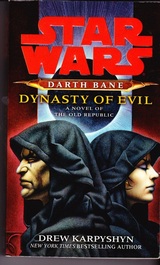 Twenty years have passed since Darth Bane, reigning Dark Lord of the Sith, demolished the ancient order devoted to the dark side and reinvented it as a circle of two: one Master to wield the power and pass on the wisdom, and one apprentice to learn, challenge, and ultimately usurp the Dark Lord in a duel to the death. But Bane’s acolyte, Zannah, has yet to engage her Master in mortal combat and prove herself a worthy successor. Determined that the Sith dream of galactic domination will not die with him, Bane vows to learn the secret of a forgotten Dark Lord that will assure the Sith’s immortality–and his own. A perfect opportunity arises when a Jedi emissary is assassinated on the troubled mining planet Doan, giving Bane an excuse to dispatch his apprentice on a fact-finding mission–while he himself sets out in secret to capture the ancient holocron of Darth Andeddu and its precious knowledge. But Zannah is no fool. She knows that her ruthless Master has begun to doubt her, and she senses that he is hiding something crucial to her future. If she is going to claim the power she craves, she must take action now.
While Bane storms the remote stronghold of a fanatical Sith cult, Zannah prepares for her Master’s downfall by choosing an apprentice of her own: a rogue Jedi cunning and cold-blooded enough to embrace the Sith way and to stand beside her when she at last wrests from Bane the mantle of Dark Lord of the Sith.
But Zannah is not the only one with the desire and power to destroy Darth Bane. Princess Serra of the Doan royal family is haunted by memories of the monstrous Sith soldier who murdered her father and tortured her when she was a child. Bent on retribution, she hires a merciless assassin to find her tormentor–and bring him back alive to taste her wrath.
Only a Sith who has taken down her own Master can become Dark Lord of the Sith. So when Bane suddenly vanishes, Zannah must find him–possibly even rescue him–before she can kill him. And so she pursues her quarry from the grim depths of a ravaged world on the brink of catastrophe to the barren reaches of a desert outpost, where the future of the dark side’s most powerful disciples will be decided, once and for all, by the final, fatal stroke of a lightsaber.
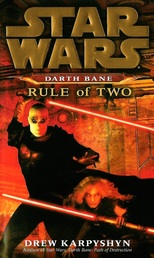 In the New York Times bestseller Darth Bane: Path of Destruction, Drew Karpyshyn painted a gripping portrait of a young man’s journey from innocence to evil. That man was Darth Bane, a twisted genius whose iron will, fierce ambition, and strength in the dark side of the Force made him a natural leader among the Sith–until his radical embrace of an all-but-forgotten wisdom drove him to destroy his own order . . . and create it anew from the ashes. As the last surviving Sith, Darth Bane promulgated a harsh new directive: the Rule of Two. Two there should be; no more, no less. One to embody the power, the other to crave it. Now Darth Bane is ready to put his policy into action, and he thinks he has found the key element that will make his triumph complete: a student to train in the ways of the dark side. Though she is young, Zannah possesses an instinctive link to the dark side that rivals his own. With his guidance, she will become essential in his quest to destroy the Jedi and dominate the galaxy. But there is one who is determined to stop Darth Bane: Johun Othone, Padawan to Jedi Master Lord Hoth, who died at Bane’s hands in the last great Sith War. Though the rest of the Jedi scoff at him, Joshua’s belief that there are surviving Sith on the loose is unshakeable.
As Johun continues his dogged pursuit of the man who killed his master, Zannah, faced unexpectedly with a figure from her past, begins to question her embrace of the dark side. And Darth Bane is led by Force-induced visions to a moon where he will acquire astonishing new knowledge and power–power that will alter
him in ways he could never have imagined. . . .
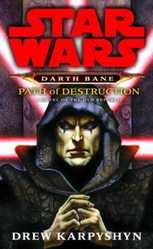 On the run from vengeful Republic forces, Dessel, a cortosis miner, vanishes into the ranks of the Sith army and ships out to join the bloody war against the Republic and its Jedi champions. There, Dessel’s brutality, cunning, and exceptional command of the Force swiftly win him renown as a warrior. But in the eyes of his watchful masters, a far greater destiny awaits him. As an acolyte in the Sith academy, studying the secrets and skills of the dark side, Dessel embraces his new identity: Bane. But the true test is yet to come. In order to gain acceptance into the Brotherhood of Darkness, he must defy the most sacred traditions and reject all he has been taught. It is a trial by fire in which he must surrender fully to the dark side–and forge from the ashes a new era of absolute power.
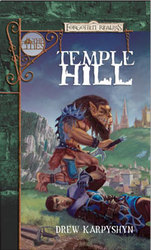 Among the dark streets of the city move thieves and cutthroats. And they don't like independent operators like Lhasha Moonsliver. But when she hires the town drunk as a bodyguard, she gets more than she bargained for. Together they'll have to battle the thieves' guild, the Cult of the Dragon, and other, darker foes. And a fallen man will have to remember the proud warrior he once was.
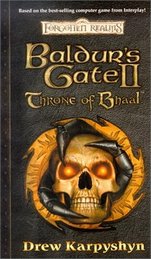 Death to the Children of Bhaal! On the run and hunted by everyone in Faerûn, Bhaal’s offspring are being wiped out. Instead of ridding the land of evil, each kill gives more power to a vicious group of Bhaalspawn intent on returning their father to the world. Follow the ultimate battle of the children of Bhaal in this thrilling novel based on the computer game from BioWare and Interplay!
Mario. This name has become synonymous with the video game medium, and its culture, as well. No other character has become as hallowed as the plumber. Video games, tv shows, and one...AWFUL movie ( http://en.wikipedia.org/wiki/Super_Mario_Bros._(film)) have all served to cement his legend, along with a colorful cast of Nintendo characters, most of which are seen in the short film above. But one line from the short film caught my attention: "Luigi tells me that our leader is dead." Link says this while holding Mario's hat. Two things bug me about this line. First: goodness, that's violent. Who would want to kill Mario? Master Chief? Nathan Drake? Bill Gates? Come on, you can't tell me that they would, in cold blood, murder Mario, who never seems to frown or be in a bad mood, even when Peach is kidnapped over and over by Bowser. Geez, you'd think they'd have figured out she's a primary target by now. The second, and more important, reason that this line bugs me is more serious: even now, nearly thirty years after jumping through his first game (1985, he was actually called "Jumpman" at the time), Mario is still a formidable powerhouse in the industry. No matter how old the plumber gets, he never seems to grow a single gray hair or stumble in his attempts to entertain whatever generation of gamers comes next. Heck, he can even recycle old games and still bring joy to people around the world. The newest game, New Super Mario Bros. U, received unanimous critical acclaim and continued Mario's reign as the flagship franchise of Nintendo.
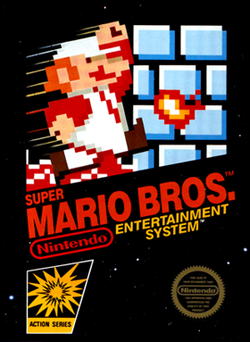
The original Super Mario Bros. 1985
|

New Super Mario Bros. U, 2012
| I was talking with a friend in my art class and she told me about how much she loved classic Nintendo 64 games, such as Super Smash Bros., Mario Kart, and Super Mario 64. It might just be me, but I'm seeing a trend there. Mario is in every single one of those! Not just that, but he's the poster boy for each one. The latter title is understandable. I mean, you name the game after him and tack on a 64 at the end, it would probably be good for sales if he was included in the content. But the former 2?
Super Smash Bros. and Mario Kart proved something extraordinary to the entire world at the time. It proved that Mario could expand his horizons in a fun way, that would bring friends and family to enjoy time with the little plumber together. Mario doesn't always have to have major adventures battling Bowser all the time. He can compete in epic brawls, win (or lose) races, play baseball, basketball, olympic games, etc. No matter what he does, he is a juggernaut that can easily compete with the likes of Master Chief, Solid Snake, Cole MacGrath, Nathan Drake, and I can keep going.
So why is it that he can continue this run during a time where gamers are calling for character development, customizable stories, and always, ALWAYS, sick weapons? Mario has a two things going for him that assist him in retaining his throne. The first is the most obvious: without Mario, video games would not exist. He started it all. Now, you can sit there and tell me about Pong in 1972 or Pac-Man in 1980, but had Mario not stepped in and stolen the hearts of gamers everywhere, games would have probably just remained in arcades, never being fully recognized as an expression of art. Gabe Newell, founder of Valve Corporation (Half-Life, Portal, Left 4 Dead), said in an interview that Super Mario 64 was his favorite game of all time. Going further, the developer said "I still have vivid memories of all the different levels...It convinced me that games were art." Nope, not Pong or Pac-Man. Super Mario convinced one of the best game developers of all time that an artistic value existed within video games.
The final thing is that Mario brings out the best in video games and vice versa. Video games are a great medium for socializing with friends, family and others. They bring people together in a way that books or movies can't. The ability to combine fun with visual entertainment and solid storytelling is unique to the medium. And no one provides us with that better than the Italian plumber. Every positive thing that has been said about video games, Mario exemplifies. The fact that problem solving in games can make people smarter; some of the best puzzles in the history of the industry exist within Super Mario Galaxy. Bringing people together? The Mario Party series has it all, but if that doesn't float your boat, you can try your hand at Mario Kart or Mario Super Sluggers. Moral lessons? You'll never see Mario working alone when trying to rescue Peach from Bowser. He's always got his friends with him, whether it be his brother Luigi, his buddy Toad, or his pet Yoshi; it doesn't make you any less of a hero when you work together.
So, what's the point of all this? This is simply a tribute to a founding father of the industry. Mario shows no signs of slowing down, despite his age. The timeless nature of the series will forever be a symbol of pride for the gaming industry. As Luigi said in the video, "This is still our world." And no matter what excitement Halo, Mass Effect, Uncharted, or Infamous has in store for us next, we can always count on Mario jumping his way there.
Shepard, you need a place to unwind.
Can you say "Understatement?"
One year ago, Mass Effect 3 was released to critical acclaim (that doesn't mean fan acclaim) and was dubbed by many gaming outlets as the best title in the trilogy. That being said, the game had its fair share of controversy with the unsatisfying ending, which many fans have refused to let go of, despite BioWare mending that wound with the Extended Cut DLC. And they even gave us two DLC packs after that, Leviathan and Omega. The former explored the history of the Reapers in depth, while the latter saw Shepard teaming up with the most badass asari in the galaxy, Aria T'Loak, to retake her space station from a Cerberus occupation. After the ending debate and the lackluster reception of Omega, I feel like BioWare knew that they had to prove that they can still deliver quality Mass Effect material. And with the third and final DLC pack, they have proven just that and more.
Mass Effect 3: Citadel begins with (as usual) Shepard receiving a message. This one is from Admiral Hackett, who tells the Commander to head to Admiral Anderson's apartment on the Citadel. This introduction seems like its going to take its time in bringing Shepard into the action; don't believe the deception. Not ten minutes into the DLC do you find Shepard engaging unknown mercenaries in a sushi restaurant in the new areas of the Citadel (using Joker as bait, I should add).
One thing that strikes me about this final adventure from the very beginning is its humor. I have never laughed at a video game as much as I did with Citadel. Specifically, Joker, James, and Shepard himself/herself were the ones who provided really laugh-out-loud moments in my playthrough. And this was a playthrough where Garrus didn't survive, so I'm sure he would've had some pretty funny moments.
On the subject of squadmates, this is another strength of Citadel. Everyone is back, including your Mass Effect 2
squad (assuming, obviously, they survived the Suicide Mission and any other events that put them in danger). The structure of the DLC is Part 1: the Mission/Adventure, Part 2: Party and Reconnection. Part 1 saw Shepard's entire Mass Effect 3 squad (Kaidan/Ashley, Garrus*, Tali*, Liara, EDI, Javik, and James) work to stop a conspiracy against the commander, along with Urdnot Wrex** and a new character: Alliance Lieutenant Brooks. Part 1 does not disappoint; epic fights and humorous dialog keep you wrapped up in the adventure. And for me, the finale provided one of, if not the most heartbreaking moment of the entire trilogy. Flaws of Part 1? I hate to complain about such a satisfying DLC, but I wish my Mass Effect 2 squad would have been present in the adventure. Those guys did not make a single appearance during Part 1 (as long as you don't count Garrus and Tali). Other than that, I applaud Part 1 as one of the best DLCs for the series.
Now, onto Part 2. If ever there was a definition of fan-service, thats what this was. Part 2 has Shepard planning a party, while simultaneously bonding with individual squadmates. This is also where the Mass Effect 2 cast begin to trickle in. In particular, a scene with Grunt at the beginning of Part 2 was my favorite of what I've seen so far. Also, I must mention Zaeed, as he began to feel less like a mercenary hired for a Suicide Mission and more like a friend, who is part of the Normandy team. Plus, Robin Sachs, the voice of the cold mercenary, passed away on February 1st, so the fact that his dialog was recorded before that makes Zaeed that much more precious as a character.
The party itself has all the surviving squadmates from the trilogy hanging out and mingling, while becoming increasingly inebriated. Some of the funniest moments of the trilogy, but if I had to choose the ultimate funnyman, Seth Green really took it up a notch with Joker. In particular, my favorite scene has EDI trying to get a hesitant Joker to dance. Who wouldn't want to dance with EDI?
Despite the advertising, Citadel doesn't offer much in the way of customizing the apartment; although, I barely noticed this, as my attention was so focused on the adventure and fellowship of my squad. It was minor; don't be
expecting a Hearthfire-esque homebuilding project.
All in all, Mass Effect 3: Citadel was WELL worth the $15. The hilarity and fellowship of the squad was so well crafted. Not only did BioWare prove they can still deliver quality content, they also gave us something that we weren't
expecting, but deep down we really wanted. A chance to truly say goodbye to the people that walked side-by-side with you into hell; against Saren, the Collectors, and now, the Reapers. And now, I really think... *If they survived the suicide mission in Mass Effect 2. **If he survived Virmire in Mass Effect 1.
"Women..."
-Urdnot Wrex, Mass Effect 3 So I was browsing GameInformer.com this morning in my college class, when I happened upon an article about female leads. Apparently, someone had asked Epic Games if we would ever see a female lead in a future installment of the their flagship franchise, Gears of War. Their response?
"That's certainly interesting, but I don't know. If you look at what sells, it's tough to justify something like that." -Chris Perna, Art Director
Now, before we get offended, he's not technically saying that they don't want to include a female lead at some point in the series. Their primary focus is, as is the case for just about everyone, money. And mo' money. Male leads, such as the series' iconic Marcus Fenix, are apparently what gamers feel the need to buy when they see them on the box cover. If that's the case, then gamers...
WE NEED TO OPEN OUR EYES.
Over the last few years, female protagonists of the industry have begun a crusade to push the increasingly dull male protagonists off of their pedestal; not only that, the portrayal of women in video games and the treatment of them have also begun to change. Lady-loving protagonists like Duke Nukem have been all but forgotten, thanks to this new attitude. I'm sure the surge of women gamers has also had a huge impact on the culture of the industry.
To further cement this viewpoint, I'll take you through one of my own adventures with a woman protagonist of today. She is an obvious heroine, who gained enough support from the outcry of fans to successfully share the spotlight with her male counterpart; the fans affectionately call her "FemShep." That's right, the female Commander Shepard.
In 2007, BioWare's Mass Effect was released to critical acclaim, with many praising the story, realistic animations and the choices presented to the player. I was a big fan of the studio's previous RPG offering, Star Wars: Knights of the Old Republic, and had been desperately searching for any other information about another installment in the franchise. Sure, there was a KOTOR II, but it wasn't a BioWare game. I learned that they had given the reins to Obsidian Entertainment, which puzzled me. Why would you give away a franchise after making just one game? I decided to do a little more digging.
Eventually, I found out that BioWare had shifted their focus to one of their own original properties, and that original property happened to be in my GameInformer issue. When I found it, I was immediately enthralled. I remember the first screenshot I saw of the game:
Sweet! It was a science fiction game where you were the commander of a ship called the Normandy and you could explore the universe. That was enough for me, I was hooked. I started reading anything I could about the property, looking at every screenshot I could find of this big-eared protagonist. Then, I stumbled upon another screenshot: Woah, woah, woah! That doesn't look normal. And no, I"m not talking about the guy on the left, but rather the woman on the right. That's the same armor the big-eared guy was wearing, but clearly a woman's body. A female protagonist!
Once the game came out, I started like normal, choosing the male Shepard and getting my bearings with the controls. I got bored real quickly, not because of the game, but because I just hadn't escaped into the world. I was a guy in real life, so why am I just going to relive reality in this medium that begs for reality to disappear? So, I made up my mind. The next time I picked up the controller, I was a FemShep guy.
Carolyn Shepard was the first Shepard that I beat the game with. Once Mass Effect 2 rolled around, she was the first I imported into it, and again, the first I beat it with. Same with Mass Effect 3. I know I sound like a fanboy, but traveling with Carolyn through three games taught me something about the female protagonist and forever changed my perspective on video games.
First, Carolyn was a Paragon, which in regular terms means she wasn't ruthless or hungry for a fight. She was patient, understanding, and selfless. She treated everyone, whether it was Samara (my favorite Mass Effect character) or Diana Allers (YOU SUCK!), with respect and considered them part of her crew; therefore, she was responsible for all of them.
The next astounding thing I realized was that despite not being male, she could actually take all the damage, face all the threats and make all the hard choices that Male Shepard could. The trilogy was still an exceptional adventure and my heart sank watching her make those hard choices and live with the consequences. She also achieved all the victories as well. She killed Saren, saved the council, stopped Sovereign, defeated the Collectors, and valiantly fought off the Reapers battle-by-battle. Liara, Ashley/Kaidan, Garrus, and Tali all cared for Carolyn the same amount as they did for my (later) Male Shepard. So, I guess it can all be summed up by Yeoman Kelly Chambers: "Character matters, not race or gender." FUN FACT: In the months before Mass Effect 3's launch, fan outcry over their affection of FemShep yielded a marketing campaign that gave the soldier her own canon look (decided by the fans), a place on Mass Effect 3's box art, and a trailer, named "Reinstated." With FemShep's case presented, let me make something clear. I'm not saying that every protagonist should have a female counterpart. Some heroes are written specifically for their respective genders. Take Sam Fisher and Lara Croft, for instance. Splinter Cell would not be the same if Sam Fisher was converted to some crony old woman. The iconic dark humor just wouldn't fit. And Lara Croft is famous because she is female, and was one of the pioneers of the industry that began pushing for femininity in the medium. The point I'm trying to get across is that we gamers should be open-minded. Game designers shouldn't be worried about sales being impacted by the gender of their protagonist. Creativity is limited when we close our minds to the ideas of others, and video games are historically linked to creativity, ever since their conception. Should a writer or designer imagine their story being told through a woman's eyes, then they should let their imaginations take them further. Worrying about what we are going to buy shouldn't be a factor. EXTERNAL LINKS: http://www.gameinformer.com/b/news/archive/2013/02/18/gears-of-war-may-never-get-a-female-lead.aspx
"War. War never changes." Generally speaking, with a little bit of argument, the above quotation's not really true. Motives vary, technology evolves, weapons change. The locations change, the times change. Even the results change. But the horrors of seeing other human beings dead, even killed by your own hand. Of seeing families fall apart, hearts broken, and dreams shattered. That never changes.
So, when you really look, it’s not the fact that war never changes; human morality or the makeup of the soul never changes (this is generally speaking, of course. Recent events have shown that there are indeed some sick f***s out there). The human spirit never changes; neither is it ever truly defeated. The world of Fallout 3 is a testament to that.
When the Lone Wanderer first stumbles out of Vault 101 into the Capital Wasteland, he (for the sake of not having to say he/she every time, we’ll just say he) is met by a blinding ray of light. As the Wanderer’s eyes adjust, an outdated sign greets him: “Scenic Overlook.” Despite the satirical intention, the Wasteland is immediately something to behold. 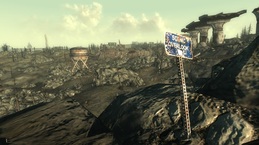 The overlook consists of a water tower a little farther off, with a crumbling highway to the right. Decomposed trees, stagnate, irradiated water, and long-dormant vehicles litter the nearly non-existent roads. Going further, the Wanderer roams into the ruins of Springvale, a town that saw its golden days before the Nuclear Apocalypse of 2077.
Soon after leaving the crumbling frames of the houses of Springvale, the Wanderer finds a makeshift town that is experiencing its golden days now, 200 years after the former. The inhabitants of the Wasteland call it Megaton, thanks to the “fountain” of the city being an enormous, secretly active nuclear bomb. It’s become such a fixture of the town that a religion, led by Confessor Cromwell, worships it as a tool of their god Atom.
Amidst this tragic environment, however, hope still lives. As I mentioned above, the world of Fallout 3 is a testament to the fact that the human spirit never changes. It is never defeated, and we always find a way to survive. And like always, what doesn’t kill you makes you stronger. The town of Megaton embodies this perfectly. They built the town around a bomb. This may seem on the suicidal or crazy side, but it actually represents a condition of humanity.
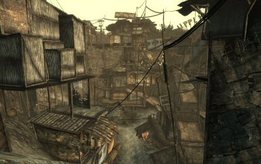 The world was destroyed by the nuclear apocalypse 200 years before the events of the game, yet humanity continues to survive, and their new reality shapes their lives and their destinies. Megaton was built up around a nuclear bomb. Continuing with this metaphor, despite the nuclear devastation (the bomb), humanity pulled through and went on about their existence the best they could (the town of Megaton). The past can be painful and at times, it seems difficult to picture yourself surviving. The strength you gain from those trials help you going forward. Your life after the obstacles have passed (the town of Megaton) gets a little bit easier and better, thanks to the lessons you learned (the nuclear bomb).
The blood, whatever the reason for it spilling, never changes. It is the loss of life, no matter how noble the cause or evil the person. Families crumble, hearts break, and dreams shatter at the mercy of war. Because, like the human spirit, war never changes. This, even in the face of monumental destruction or colossal adversity, is the blinding light in whatever wasteland we find next. As long as humanity finds the strength to get back up, the sun will still shine in the Capital Wasteland.
2012 was another great year for video games. We saw a good amount of big releases, and even more announcements for future big releases. New installments in the BioShock, Gears of War, and Metal Gear franchises are just a few of the releases we can expect for 2013 and, thanks to the Mayans being wrong and nobody being able to predict God yet, the world did not end and another year of gaming is coming. This past year, we had some surprises, we had some good and bad performances, and another batch of new entries in long-running series, as well as some new IP's stepping up to do battle with the industry's giants. Thank you God, for another great year of gaming has gone, spreading wide the gates for another great year to come. Power to the Players (don't sue me, GameStop!).
-Ben
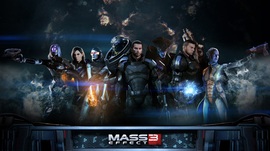 Surprise of the Year - Mass Effect 3
It wasn’t just the ending that made me step back and think for a little bit. The entire game was full of moments that filled your mind with awe. It took characters that we had grown to love over the course of an entire game (and in some cases, the entire franchise) and made them fresh again. The majority of Mass Effect 2’s cast surprised me in the third installment with what they had made of themselves. I can’t even choose a favorite, because they were all not what I was expecting, but it also fit most of them perfectly. The way the game was able to keep me on my toes, despite playing through two earlier entries multiple times, warrants Mass Effect 3 for Surprise of the Year.
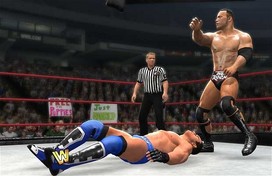 Best Sports Game - WWE '13
I’m a little biased in this category, not only because I’m a huge wrestling fan, but also because I don’t particularly play sports games. Out of pure instinct, I bought WWE ’13with my newly reimbursed checking account, and for the next few days, I was hooked. Despite poor reviews for it’s predecessor, WWE ’13 did not let that bring it down, as it boasted a pretty in depth story mode in WWE Universe, where the game would make up storylines for you, whether you decided to follow one individual superstar or go match by match, no matter the participants. Plus, the game was a love letter to the renowned Attitude Era (the time of The Rock, Stone Cold Steve Austin, an Degeneration-X, among others) which is by far the best era in the business’ history, with it’s Attitude Mode. Attitude Mode let you relive the journey of several of the big names of the Era, including the ones I mentioned above. Bravo, Vince McMahon. Your company put out a great sports game, and it fittingly wins TheGamerDrive’s Best Sports Game.
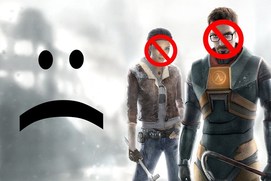 Most Notably Absent - Half Life 3
Screw you, Valve.
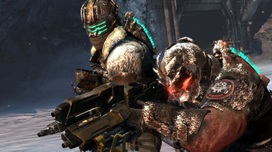 Most Anticipated Game - Dead Space 3
Trudging through the corridors of whatever-Necromorph-infested-ship-was-next with Isaac was always an entertaining experience. One reason was that wherever I expected something to happen, it didn’t. Silence was the enemy’s worst weapon. The other reason was when it did happen, I laughed so hard at myself screaming that I had to tell my friend about it. Now, with Dead Space 3only a month away, the hype is built up to a maximum. With the third installment, instead of laughing at myself for screaming, I’ll also hear my buddy on the other line screaming as well, thanks to the added co-op feature that is on its way. Isaac Clarke will be joined by John Carver, as they embark upon an epic fight to eradicate the Necromorph infestation once and for all. What a fitting way to increase the intensity by adding co-op. You and your buddy have talked about your shared love of the series; now, you can finally experience the epic (final?) chapter together. With no other contestants even on the radar, Dead Space 3 easily takes my Most Anticipated Game for 2013.
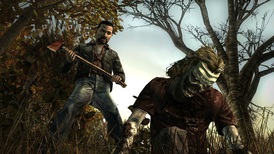 Sleeper Hit - The Walking Dead
Starting off with a little honesty, I just began my foray into The Walking Dead; I believe I’m still on Episode 1. I decided to give it a try after this random XBLA game (based off a television series I don’t even watch) won SpikeTV’s Game of the Year at the Video Game Awards. Like a few other gamers who had never even heard of the game, I was a little bit agitated. So far, however, I’m enjoying the game quite thoroughly. Its choice-based gameplay rivals that of the original Mass Effect and, quite frankly, I’ve learned to trust other gamer’s words when it came to a great game. Despite other efforts for relatively new studios (Dishonored,for instance), The Walking Dead must take home my Sleeper Hit award.
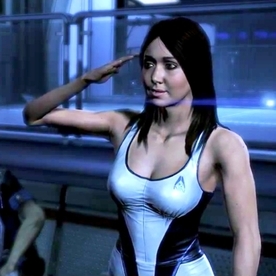 Worst Character - Diana Allers (Mass Effect 3)
Never, ever, EVER have I hated a fictional character with such malice as I do Diana Allers. Basically a cameo in video game form, Allers is voiced (and modeled?) after Jessica Chobot, who is a host of something, somewhere, far far away. Who cares?! Her character, to me, was an insult to the rest of the cast of Mass Effect 3, as she served absolutely no purpose, had a short, dreadful, uninspired romance subplot, and plus, Chobot’s acting was so bad, it made Meer’s monotone male Commander Shepard look like Heath Ledger’s Joker (R.I.P. Heath) in comparison. No question, Diana Allers is stuck with my Worst Character award. Good riddance.
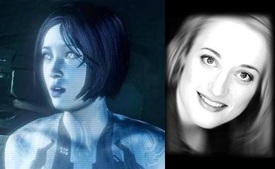 Performance of the Year (Female) - Jen Taylor (Cortana, Halo 4)
As our voyages with the Master Chief has gone on, we’ve seen his relationship with Cortana deepen, from a partnership, to a trust, and ultimately, a love story between the two; however, we’ve also seen Cortana’s sanity begin to decline rapidly, as she nears the end of her lifespan. Taylor’s emotional performance keeps up with the increasing complexity of her character. Moments in Halo 4’s campaign had me caring more for Cortana than any previous entries in the series. Taylor’s performance trumps all other candidates, and is an easy choice for Female Performance of the Year.
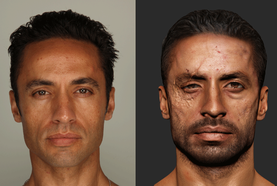 Performance of the Year (Male) - Kamar de los Reyes (Raul Menendez, Call of Duty: Black Ops II)
Now, if anyone else is like me, you HATED Raul Menendez with a passion. Yeah, we know, we’re sorry about your sister, but goddess, just get over it already! He is a villain, however, so, he was doing his job by being an absolute ass, and even I have to give props to Kamar de los Reyes, who provided motion capture and the voice. A phenomenal performance, especially for someone who I had never heard of prior to this role. Thanks to Reyes’ obvious enthusiasm for the character and powerful acting ability, he takes home the Male Performance of the Year.
 Studio of the Year - Arkane Studios
I never played Dishonored, though it’s definitely first on my list of games to be played. The guys at Arkane Studios first broke into the mainstream gaming market with their title Dark Messiah of Might and Magic, which they co-developed with Floodgate Entertainment. Their first major solo effort, 2012’s Dishonored, released in October, and received major pre-release attention thanks to the well-known publisher, Bethesda (Oblivion, Fallout 3,and Skyrim). Upon release, the game received universal acclaim, receiving a nomination for Game of the Year at the SpikeTV VGA’s. Now, a studio who can make a game of that quality for their first major solo effort has definitely earned TheGamerDrive’s respect. A shoe-in for Studio of the Year.
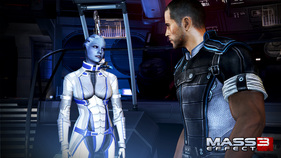 Best RPG - Mass Effect 3
The finale of the Mass Effect trilogy, despite the ending controversy, was an amazing game. The content of the game itself wasn’t the only thing that made it great; it was its predecessors and the choices you made in them that further elevated the final chapter. I saw every decision I made have a major impact on the battle against the Reapers, from the reclaiming of the Quarian homeworld to the battle for Earth. Every character I loved returned, and they actually remembered every choice I had made, even if I didn’t. BioWare doesn’t really have any competition in this genre anymore, and they take home Best RPG.
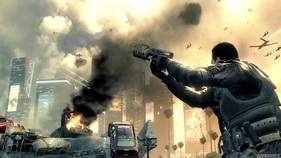 Best Shooter - Call of Duty: Black Ops II
Of course, Call of Duty wins best shooter! Everyone gives that ward to them…Not True. I’m one of the few who is actually against Call of Duty stealing awards from other great games; however, even I can’t deny how great Treyarch’s Black Ops II is. Despite commonly being seen as the more inferior of CoD’s two primary developers, Treyarch has done something never before seen the series; the power of choice is brought to the annualized franchise. The variation in endings thanks to the choices I made in this game is astounding. Also, the return of Hudson, Mason, and Woods, and the introduction of Harper and David Mason gave us some of the coolest characters of the year. Yeah, yeah, yeah, the multiplayer was alright, too. There you go, CoD, another Best Shooter award.
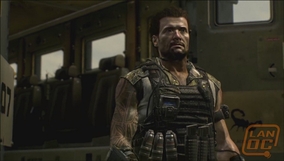 Character of the Year - Mike Harper (Call of Duty: Black Ops II)
One of the new additions to the Call of Duty roster, Mike Harper is introduced as a member of David Mason’s SEAL Team Six, being called “dipshit” by the beloved Frank Woods. From then on, Harper embodies Call of Duty; he’s loyal, he’s fearless, and he gets the job done. Towards the end of the game, he becomes the most reliable companion of the player, though his survival comes with a cost. So far, every playthrough, I’ve been willing to pay that cost; I just gotta’ have Harper with me. Providing motion capture, modeling, and voiceover for him is Michael Rooker, who gives the best performance as the badass SEAL. No question, Harper is my Character of the Year.
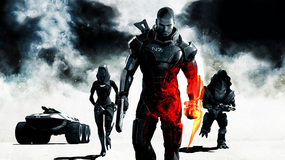 Game of the Year - Mass Effect 3
This game wins the big one, not necessarily for what it is, but for what it represents; an epic space opera, crafted solely by my choices. Taking each of my Shepards through the final chapter (I have about five or six of them) was exciting throughout the entire experience. Each one, despite all of them being primarily Paragon, took on a personality of their own thanks to the choices I had made, in regards to companion loyalties, romance, and who was lucky enough to survive through all three games. BioWare received harsh criticism and outright insults from fans and critics alike for the ending (which has since been corrected with the Extended Cut DLC), but they really did deliver a complete package for the finale. Adding multiplayer to one of their games for the first time, the gameplay felt like the studio had done it before and to a great end. Tying the multiplayer into the single player campaign and leaving the status of the universe solely in the players hands, each individual gamer will have a different story to tell of their universe once Mass Effect 4 rolls around. BioWare, I am behind you 100%, and as a motion of good faith, take home this Game of the Year award.
|
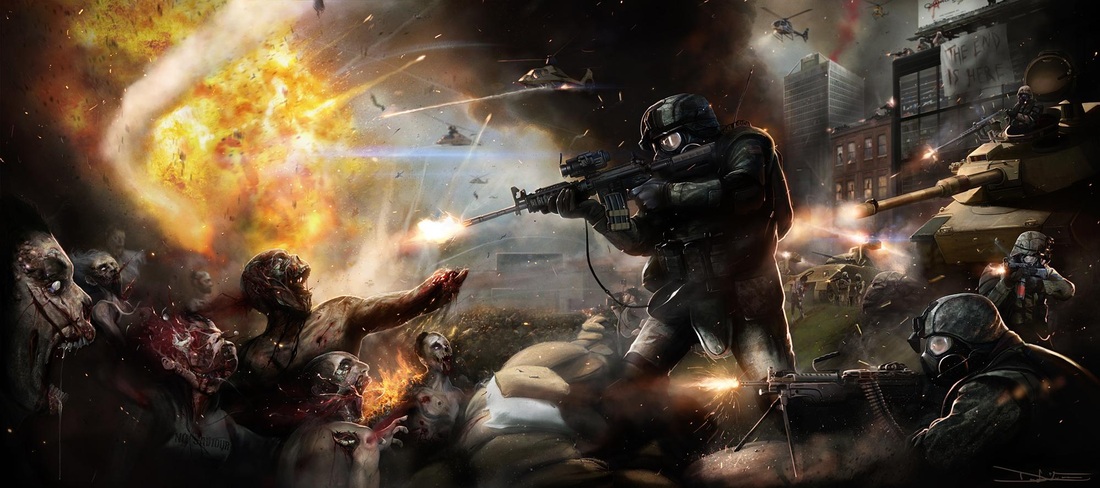





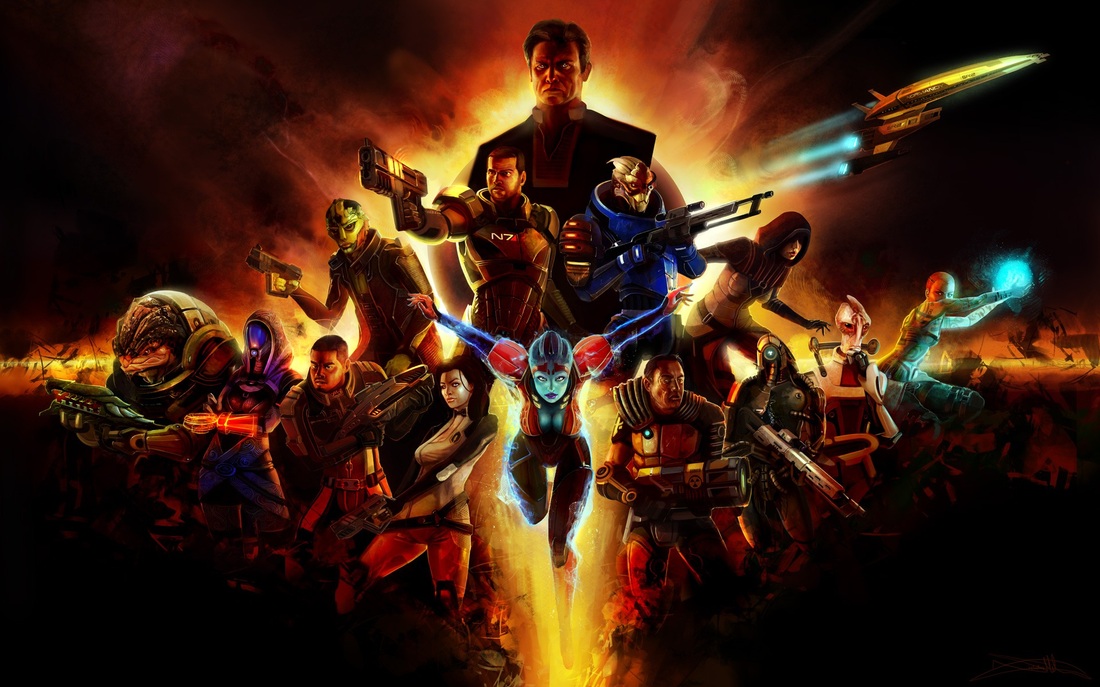
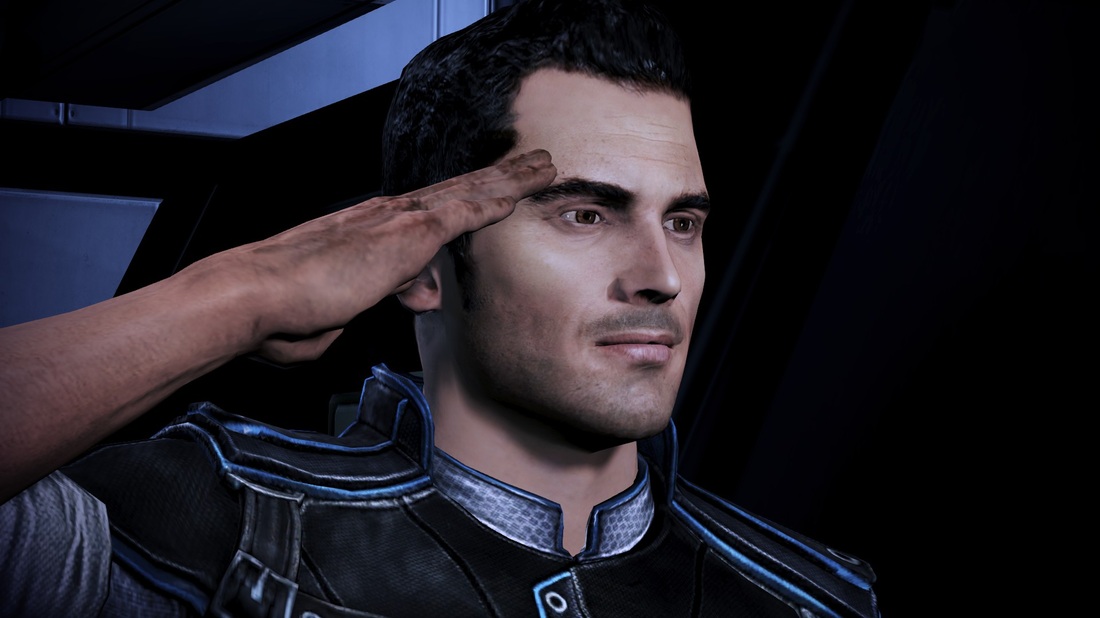
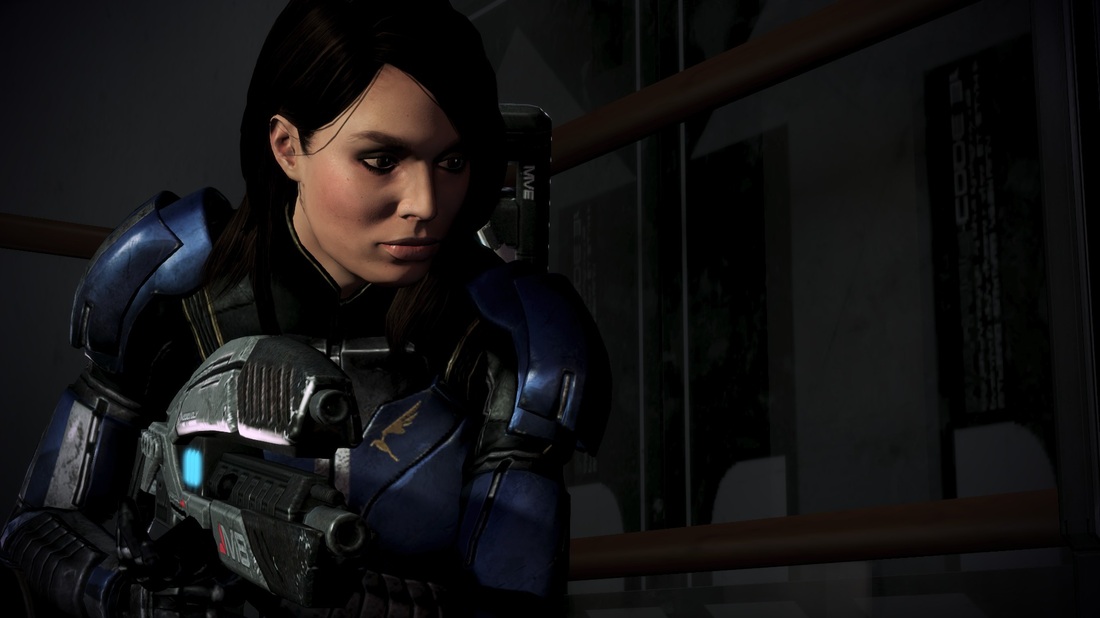
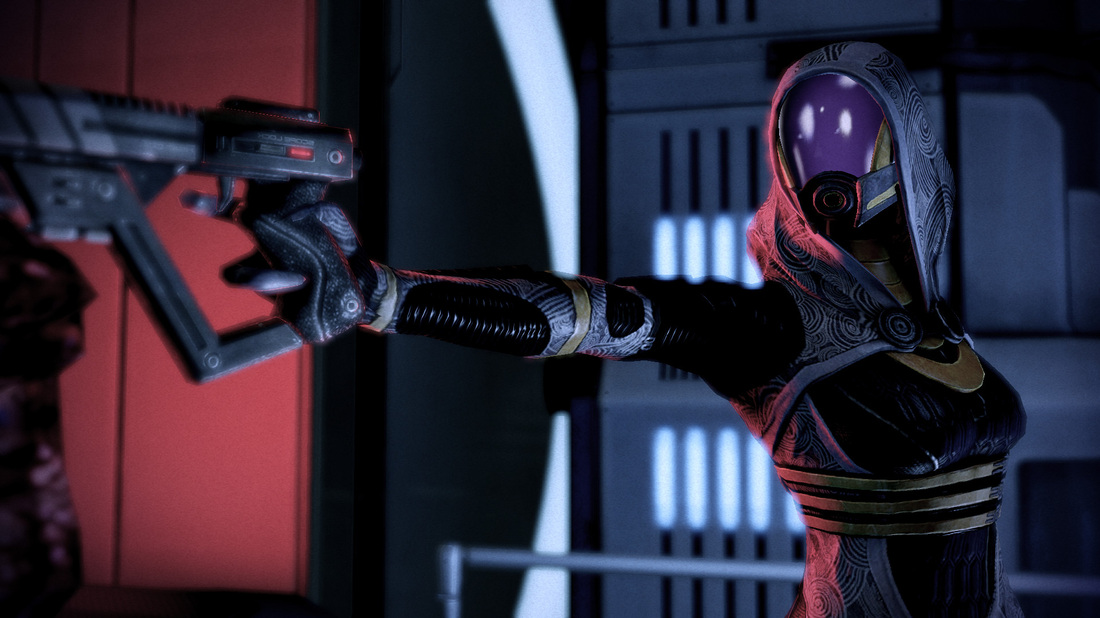
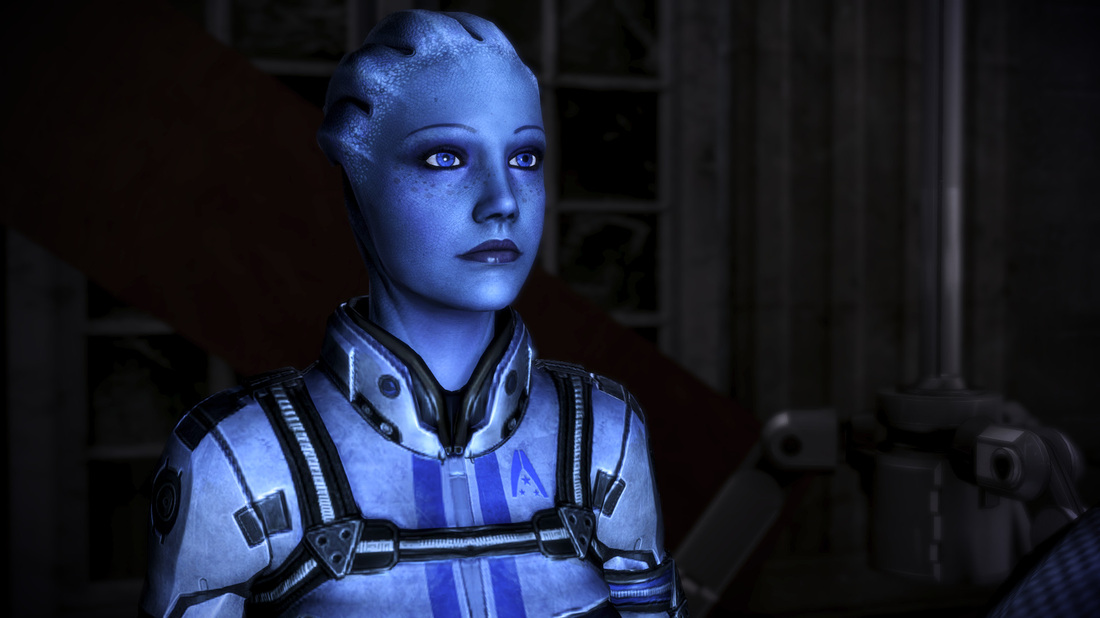
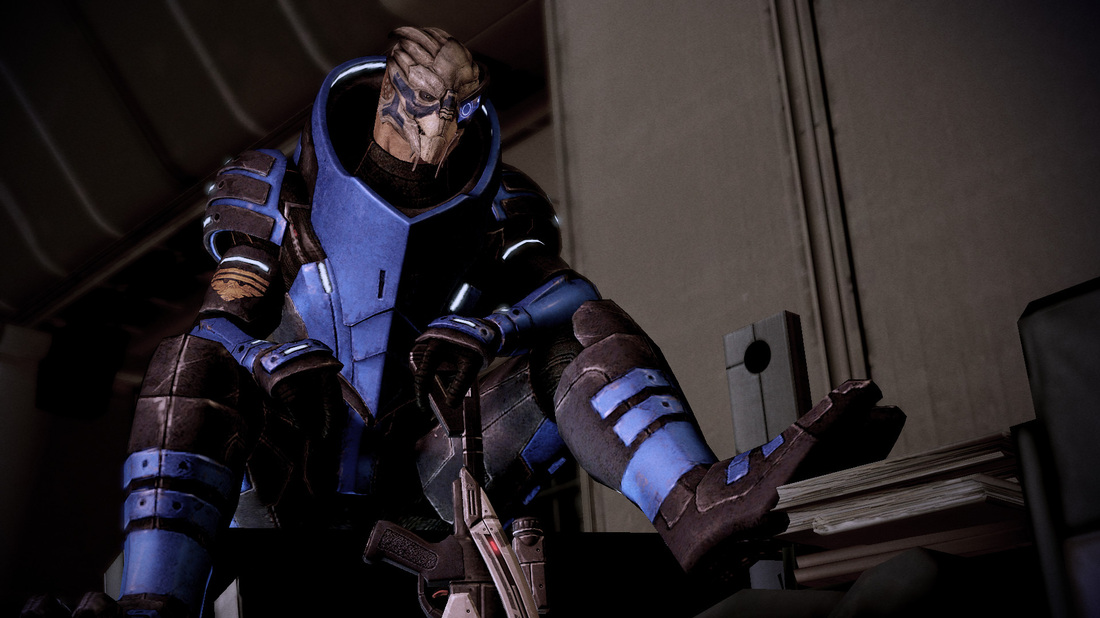
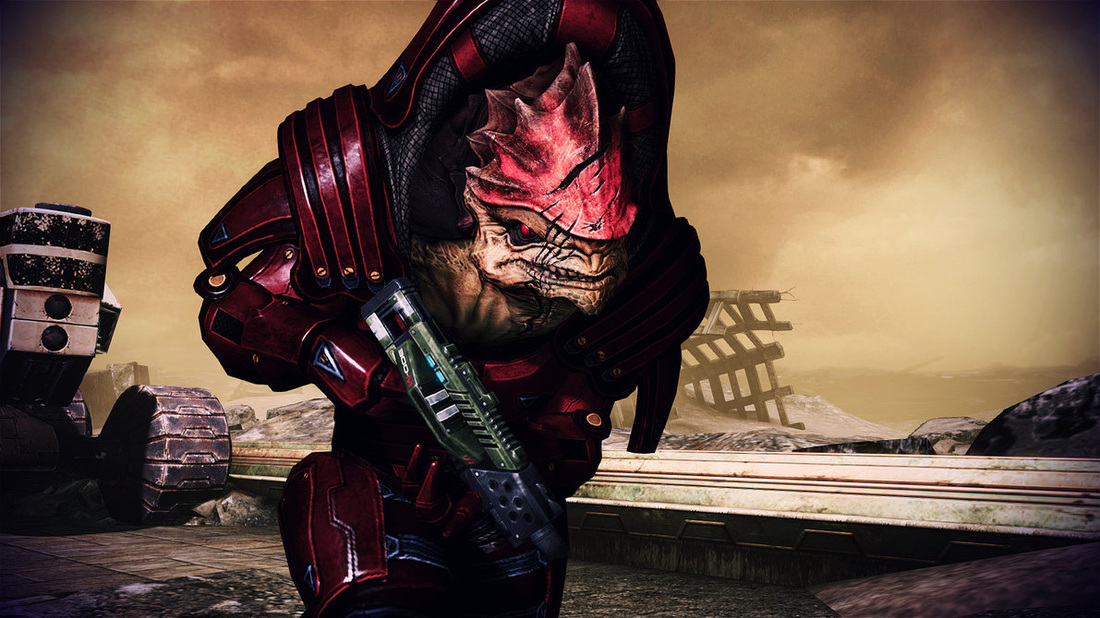
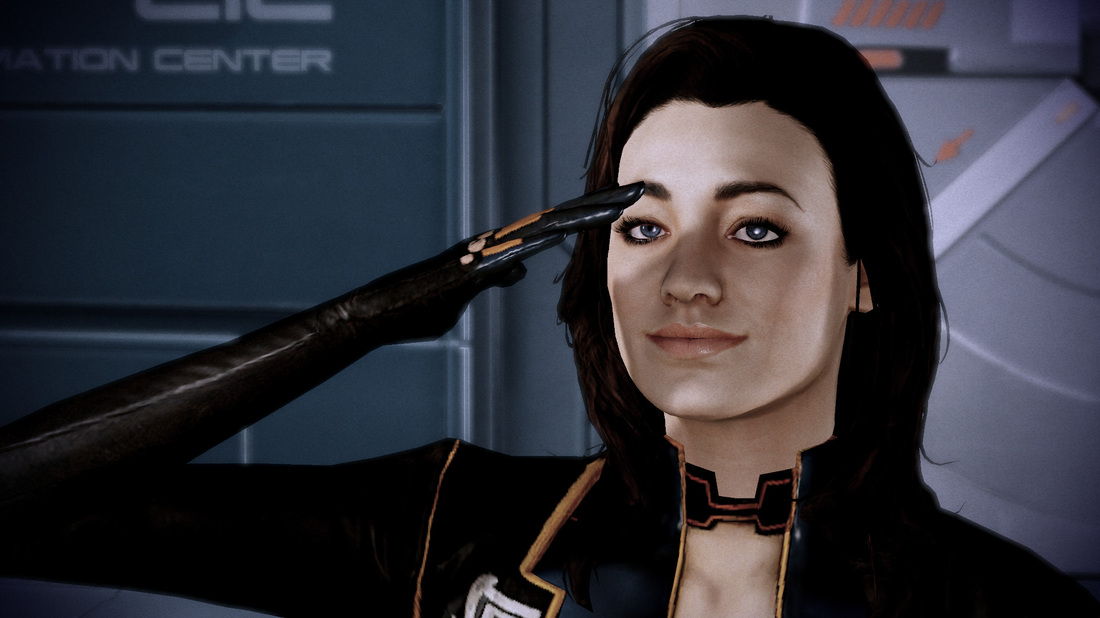
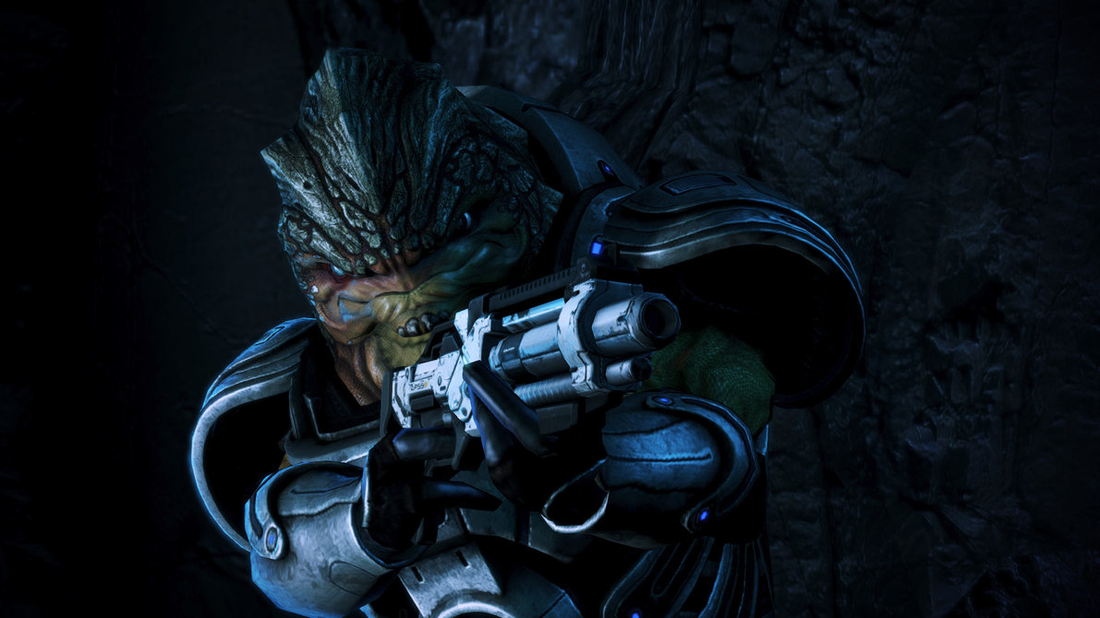
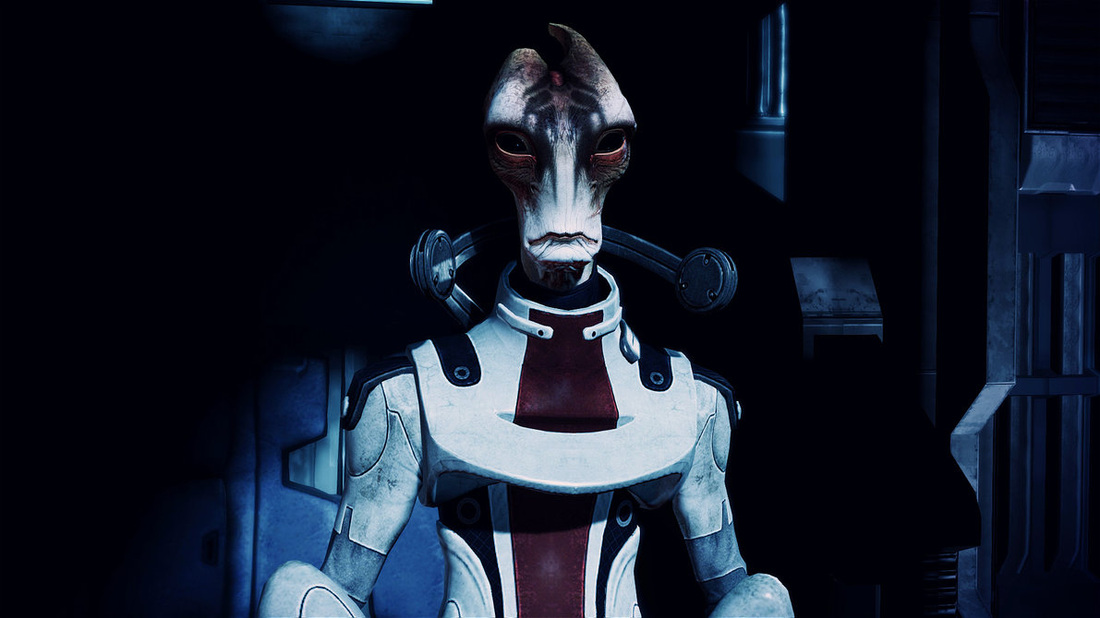
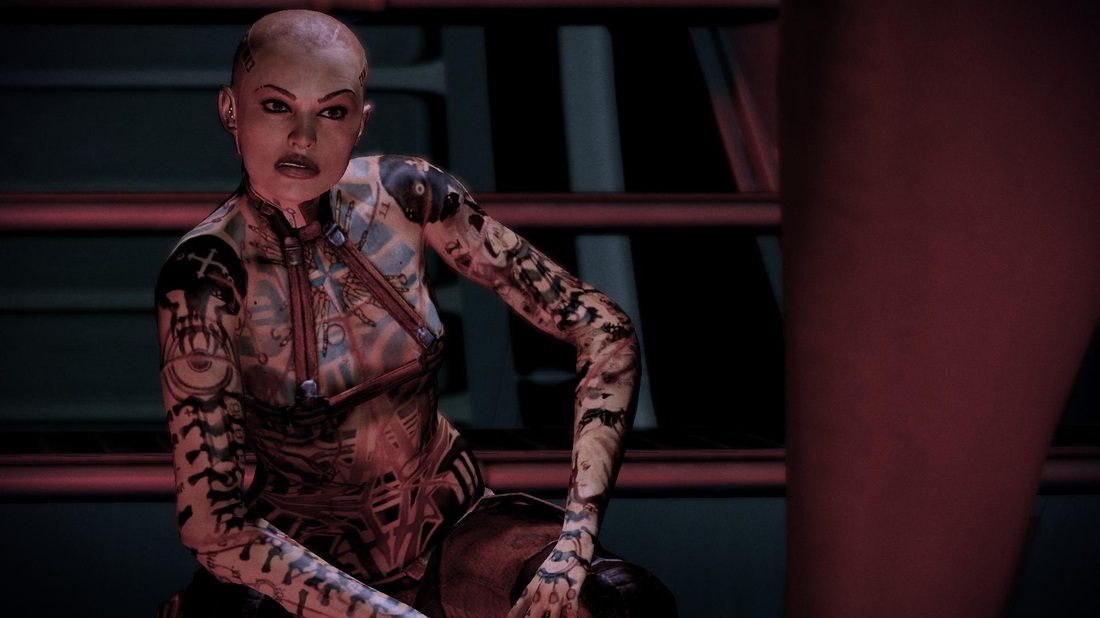
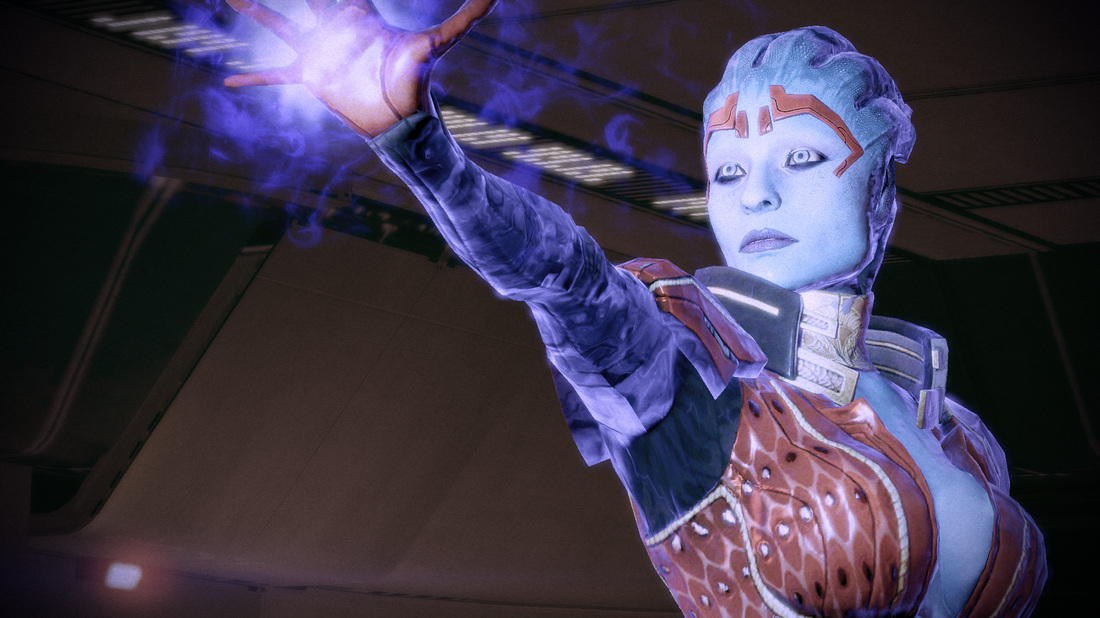
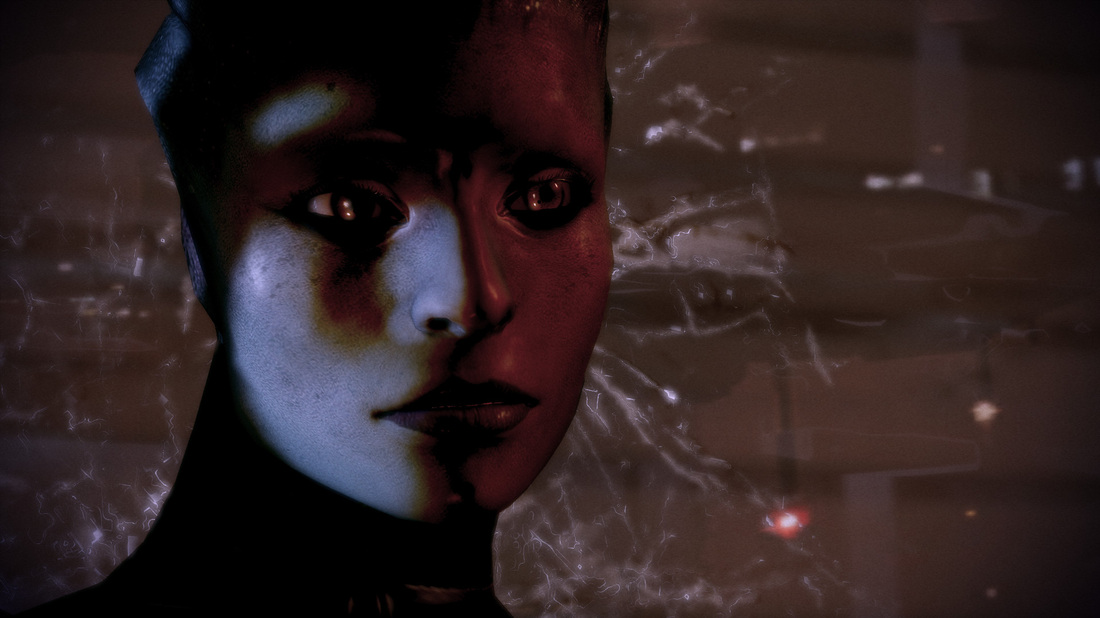
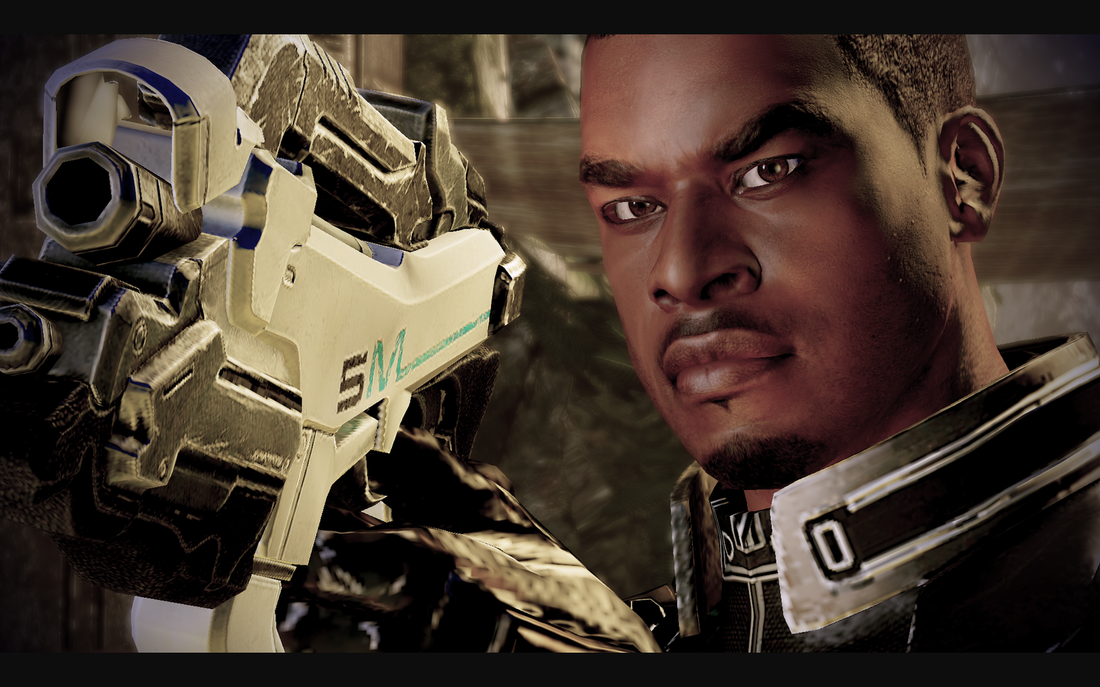
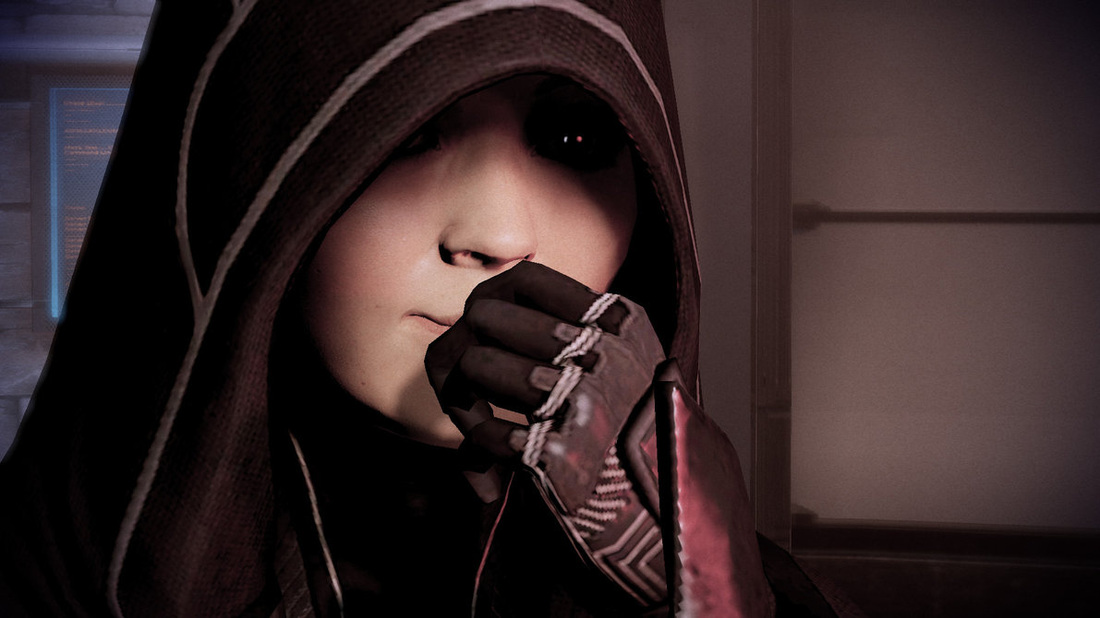
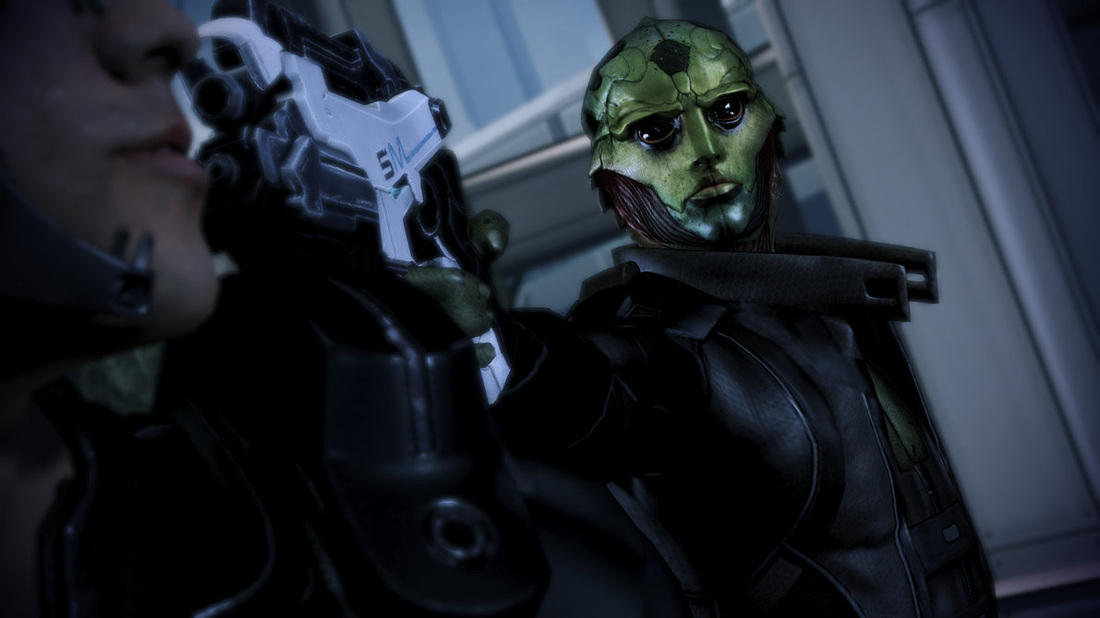
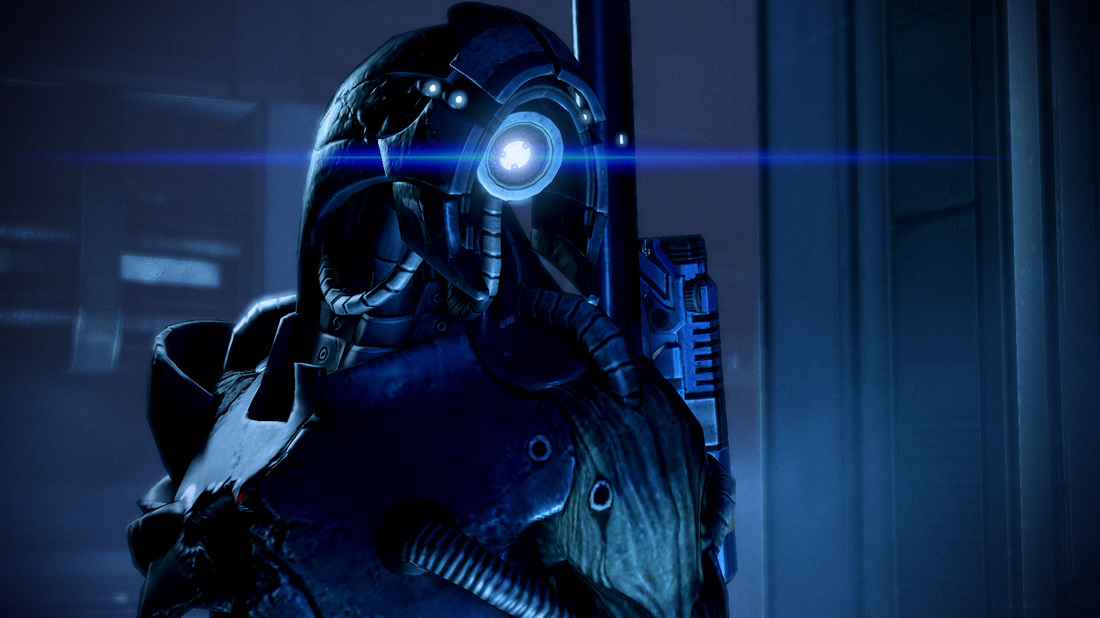
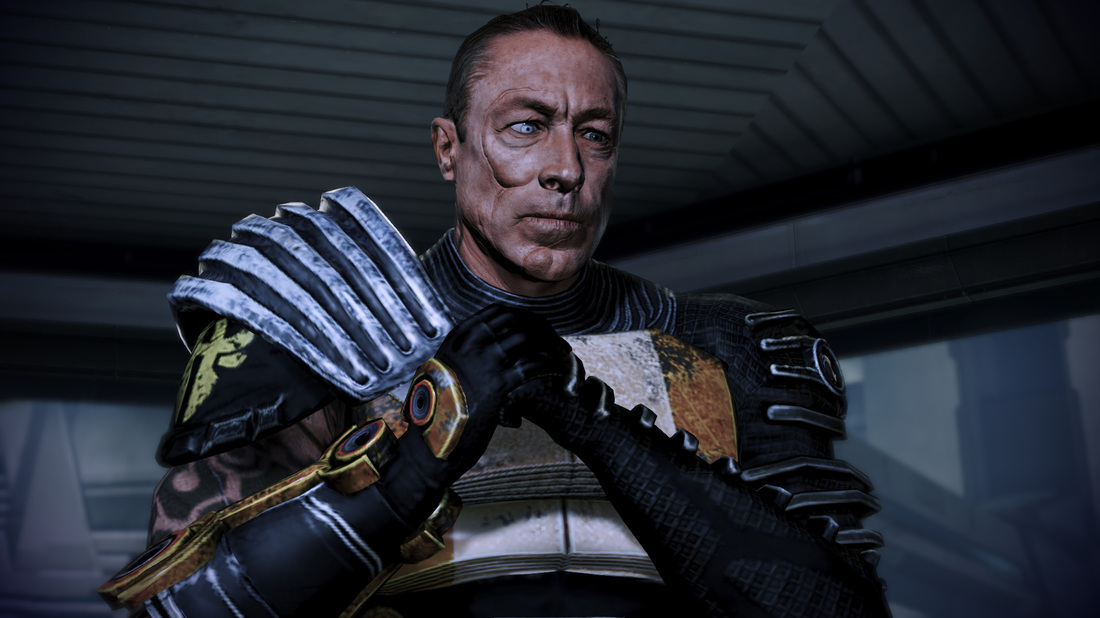
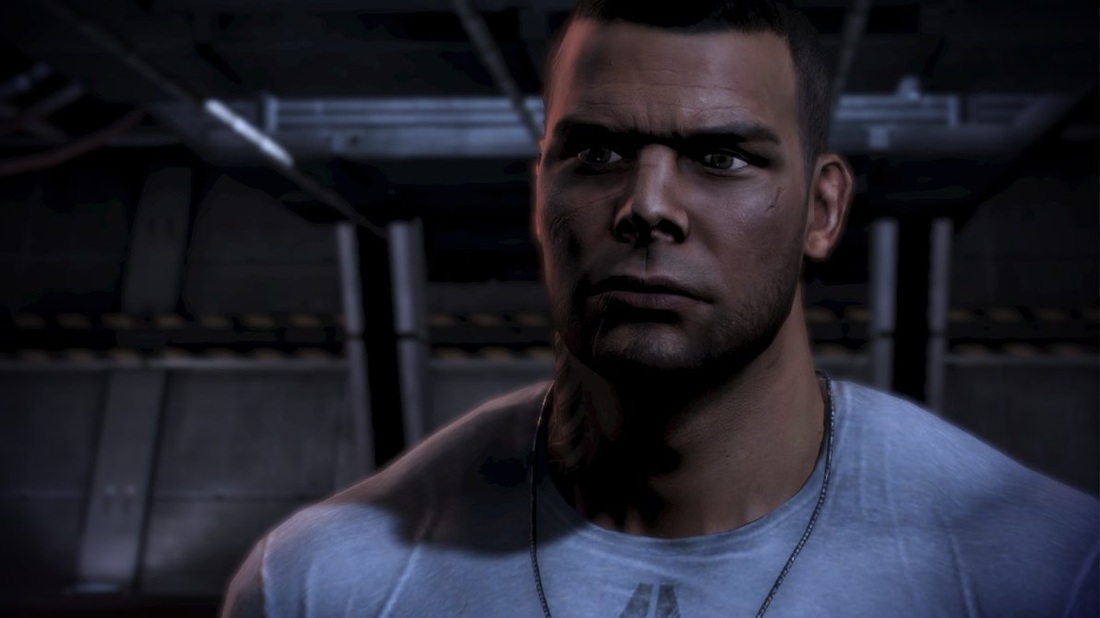
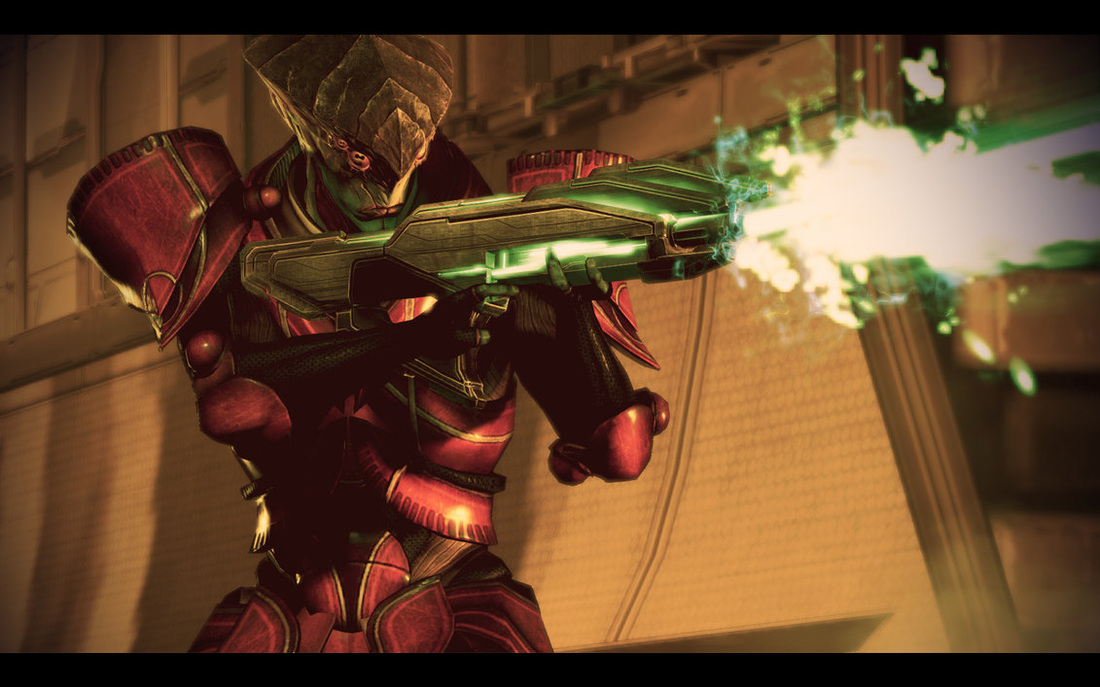
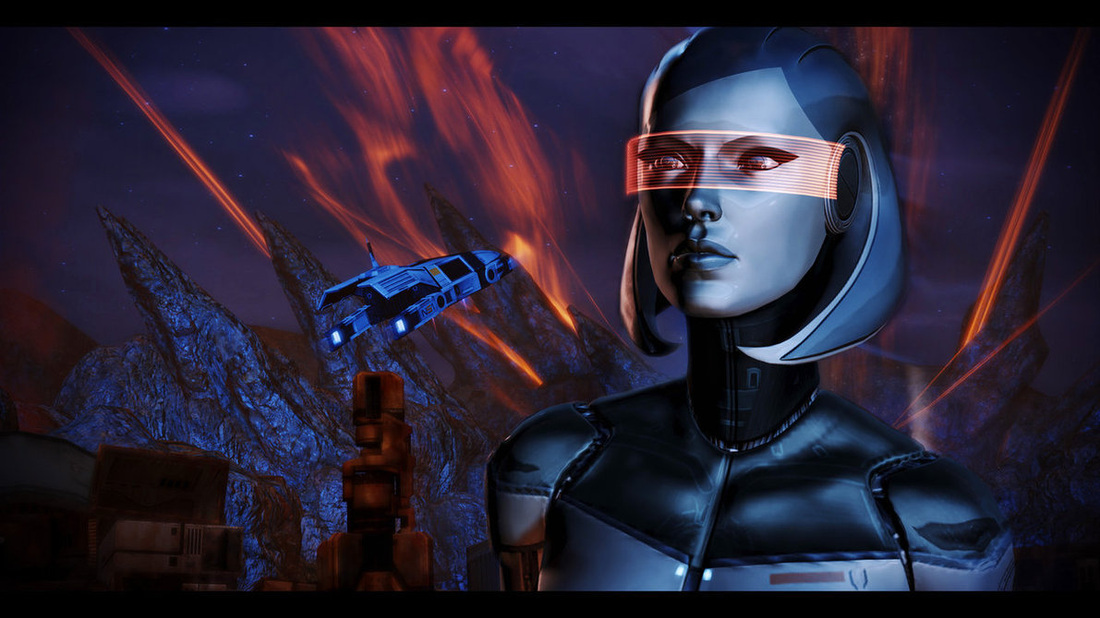
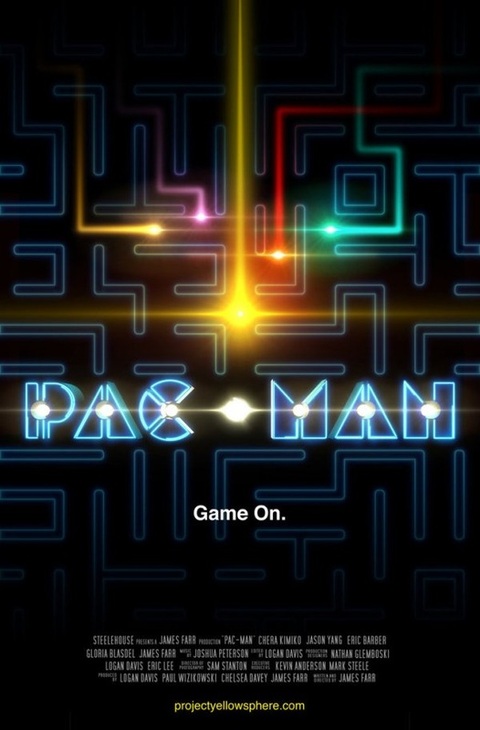
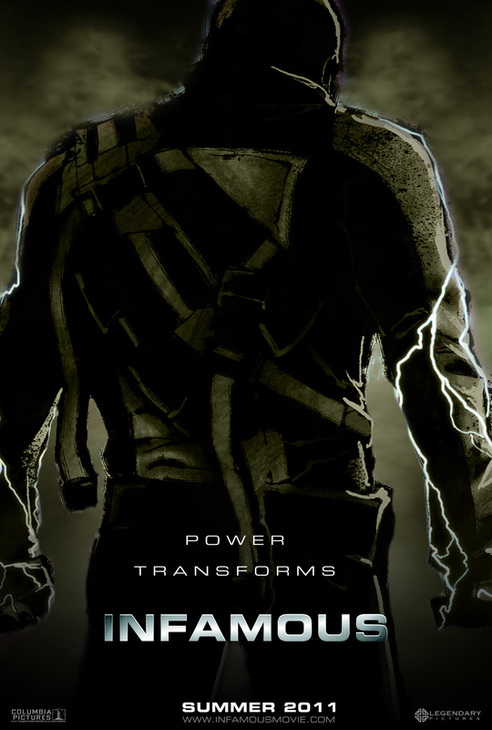
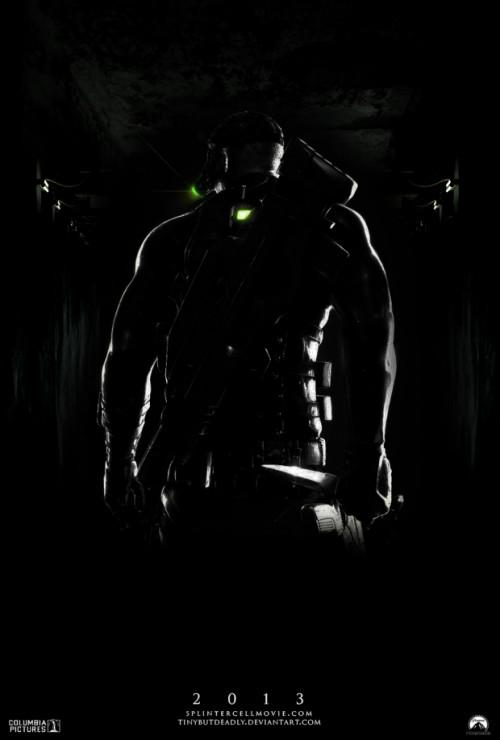
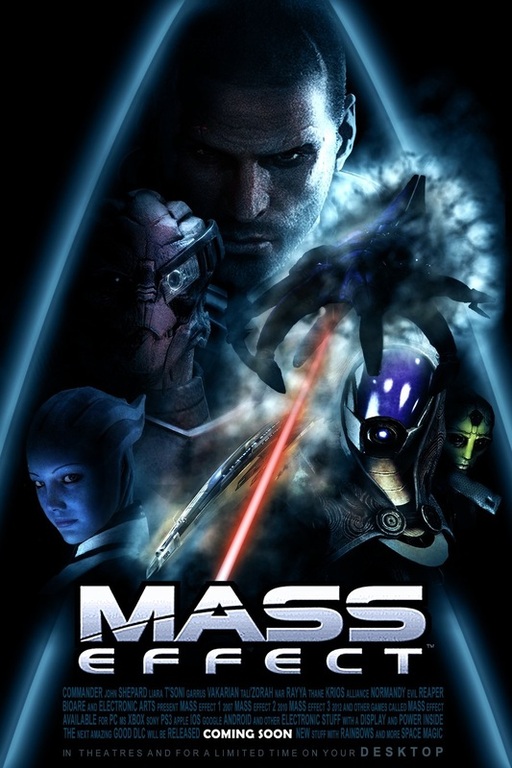
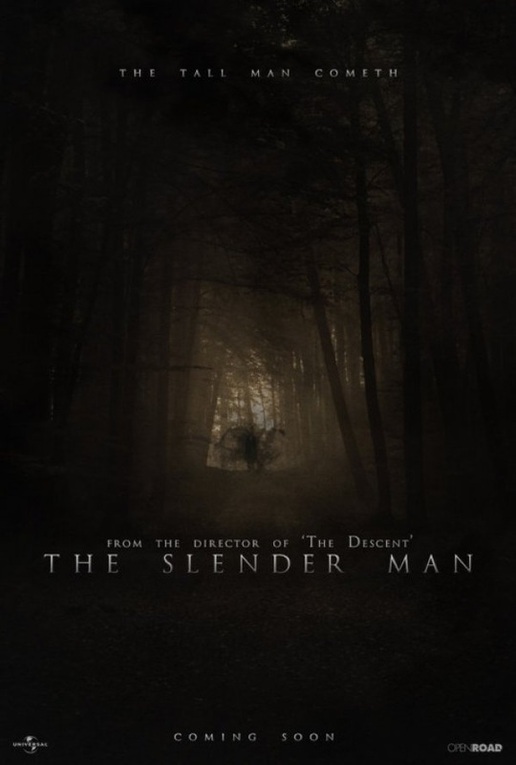
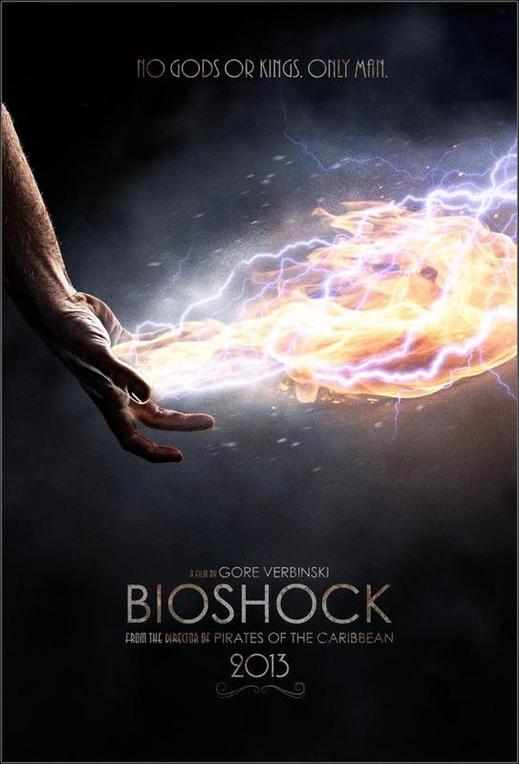
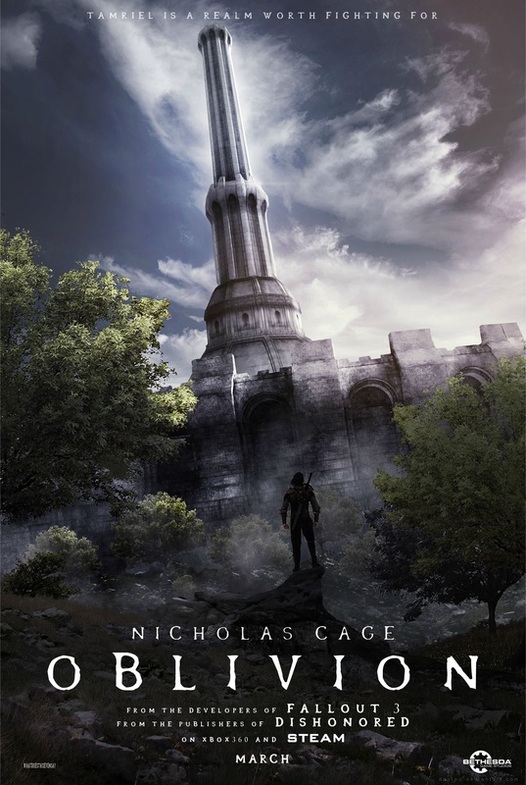
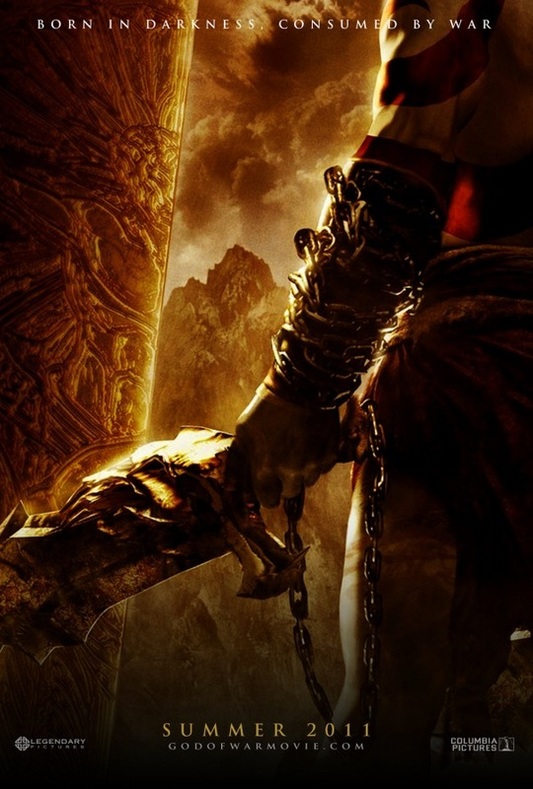
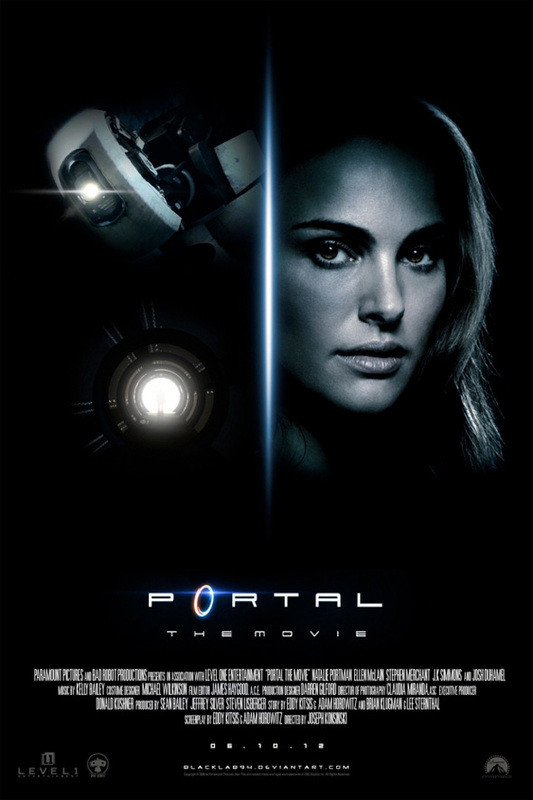
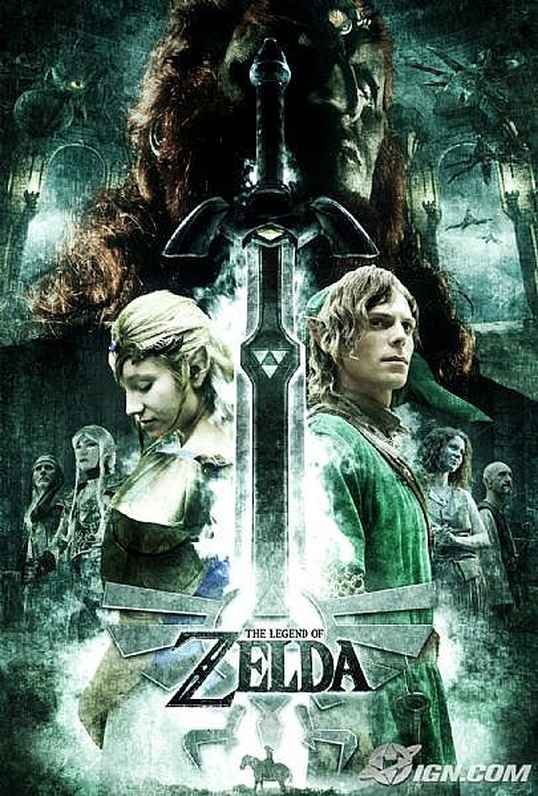
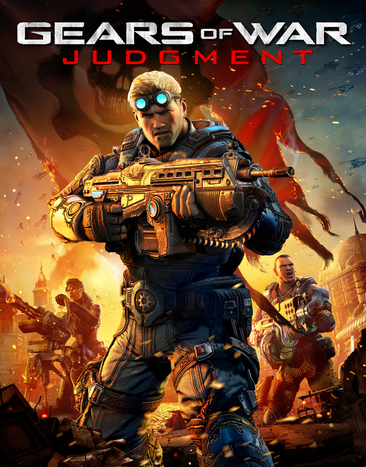
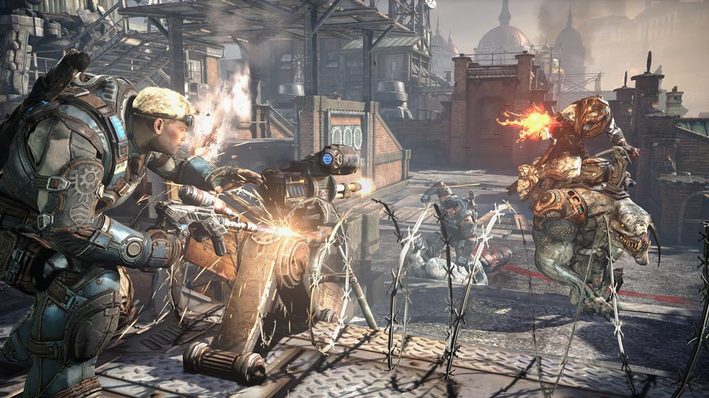
















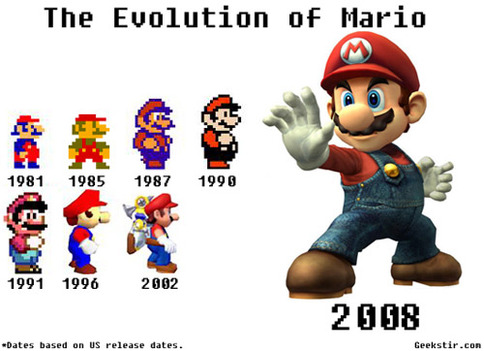

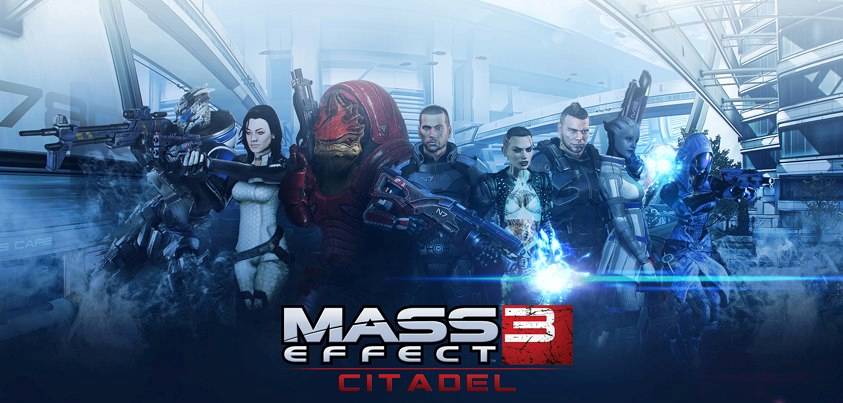
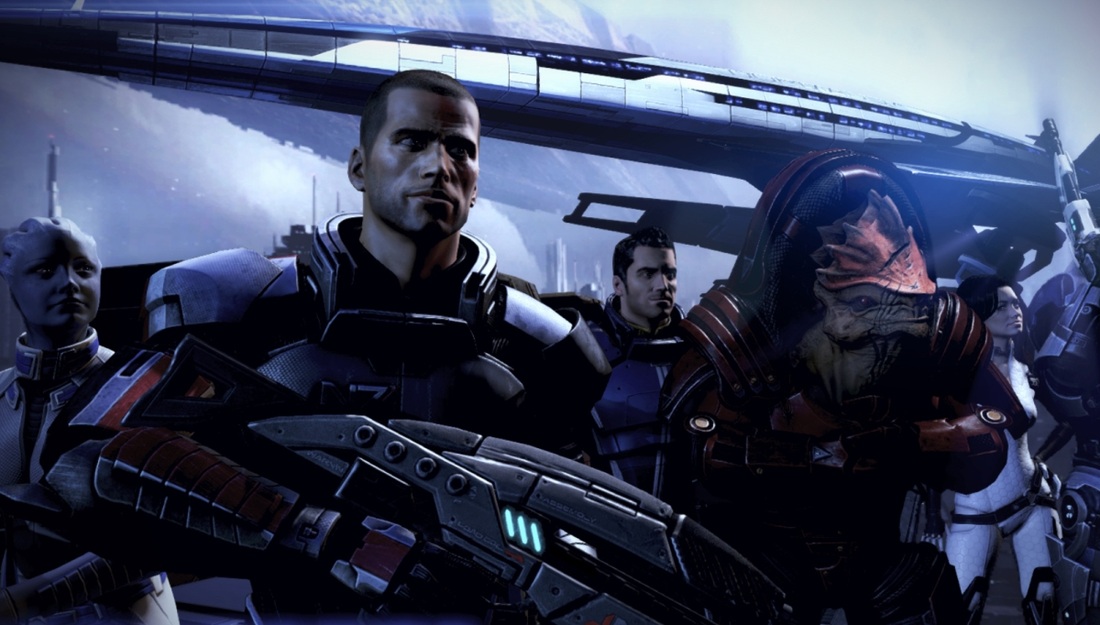
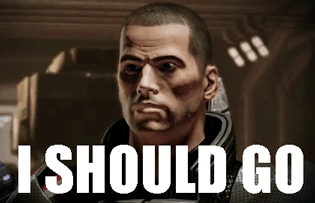
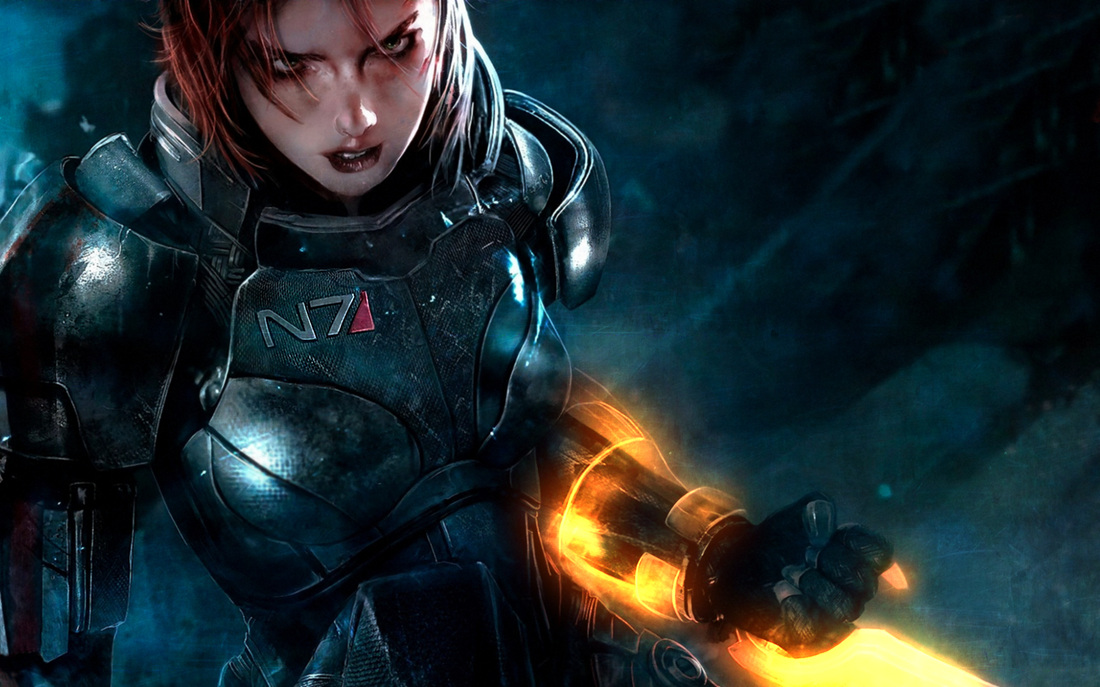
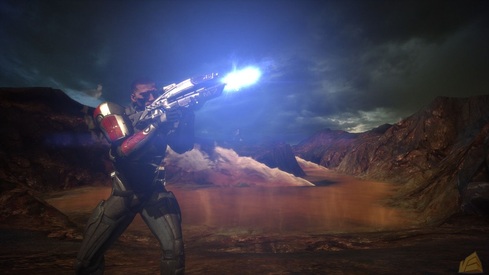
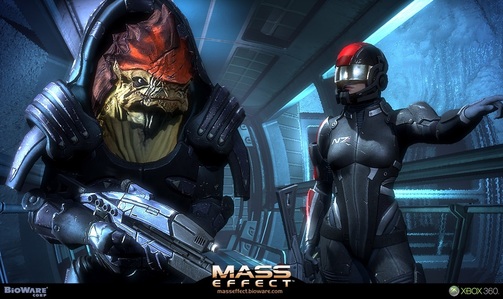
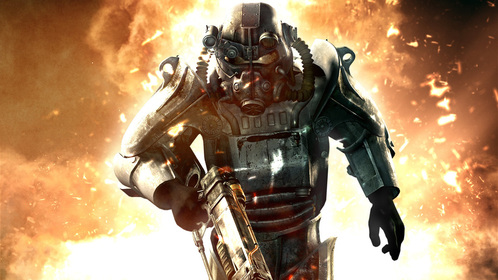


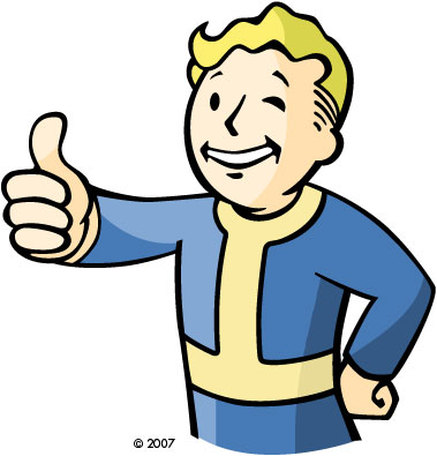













 RSS Feed
RSS Feed